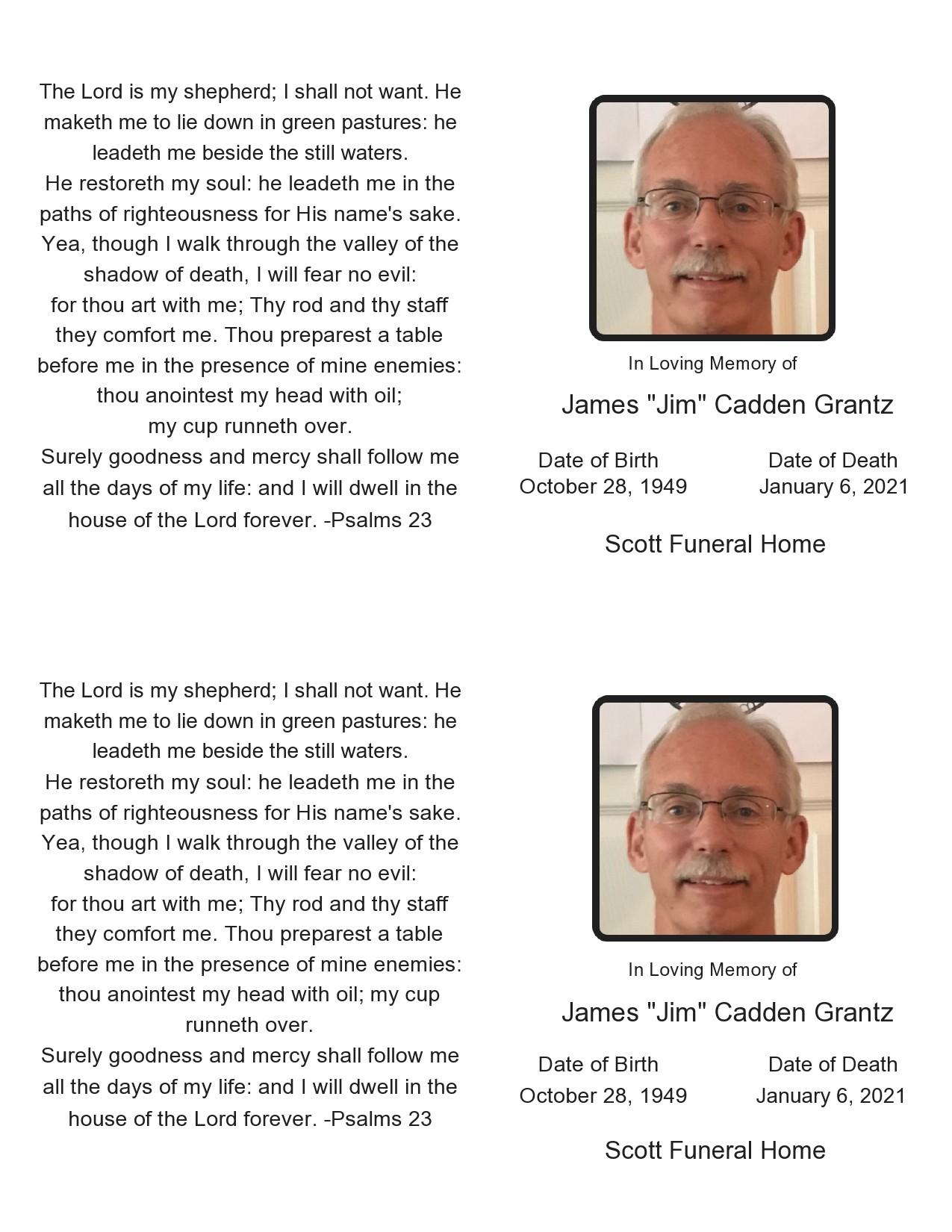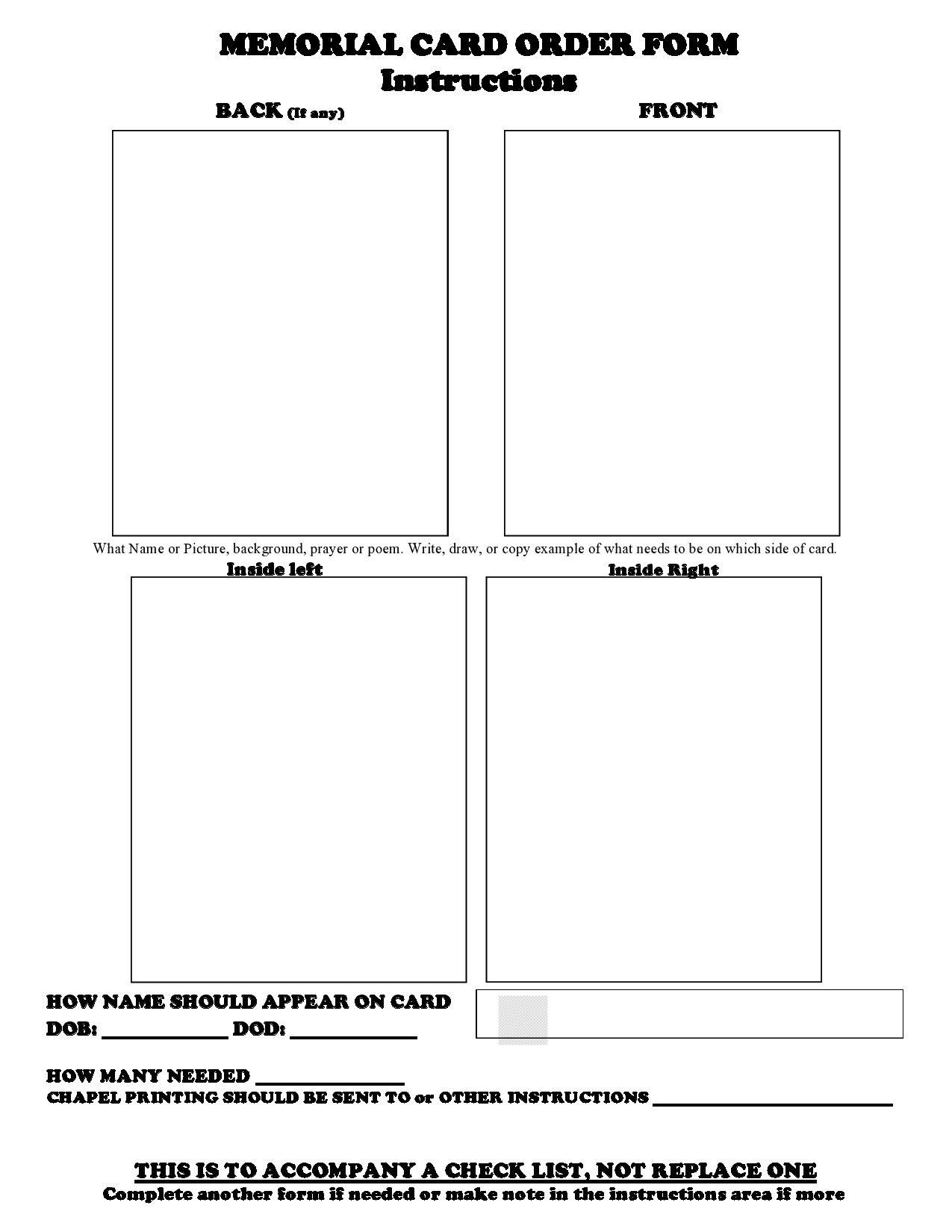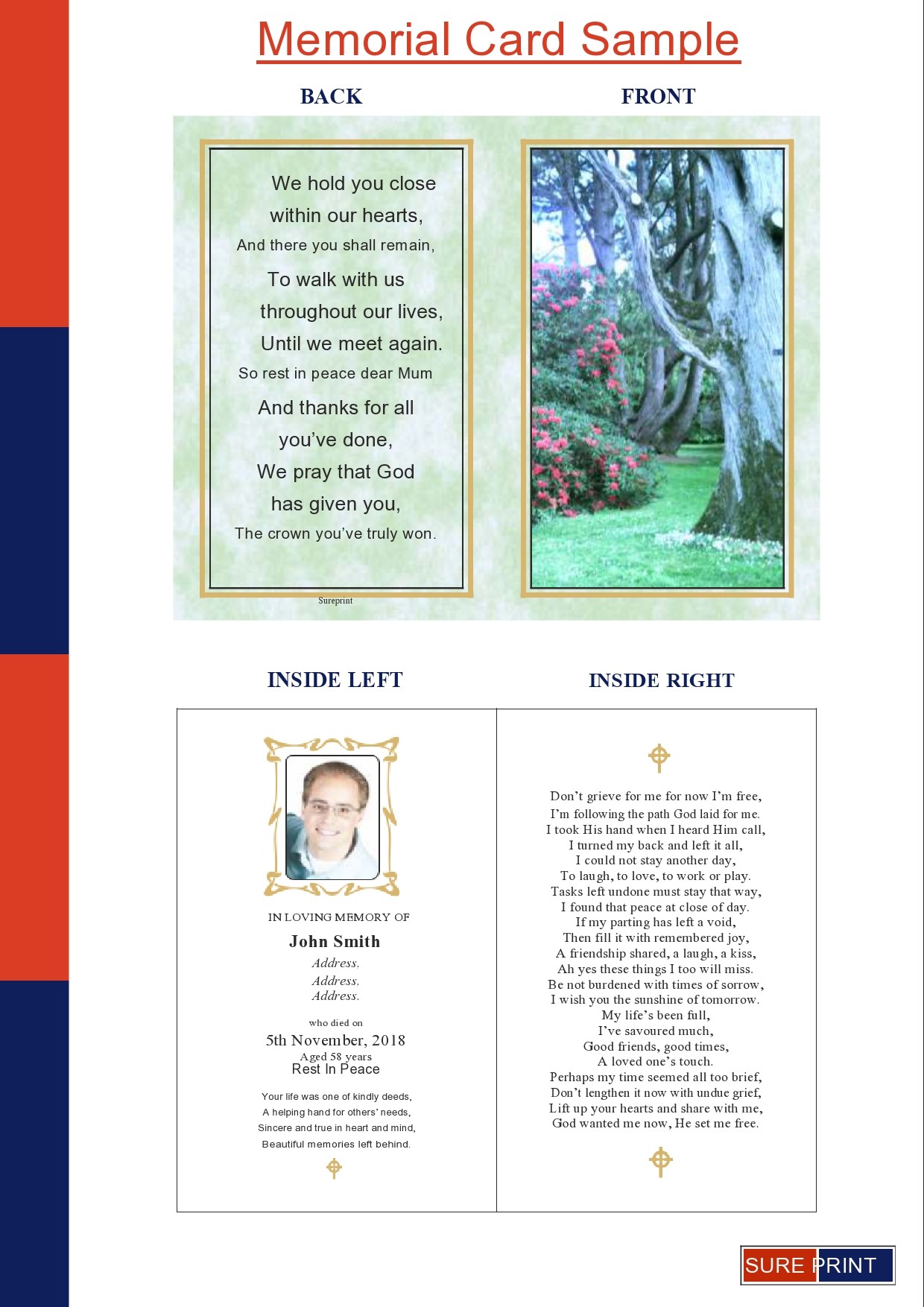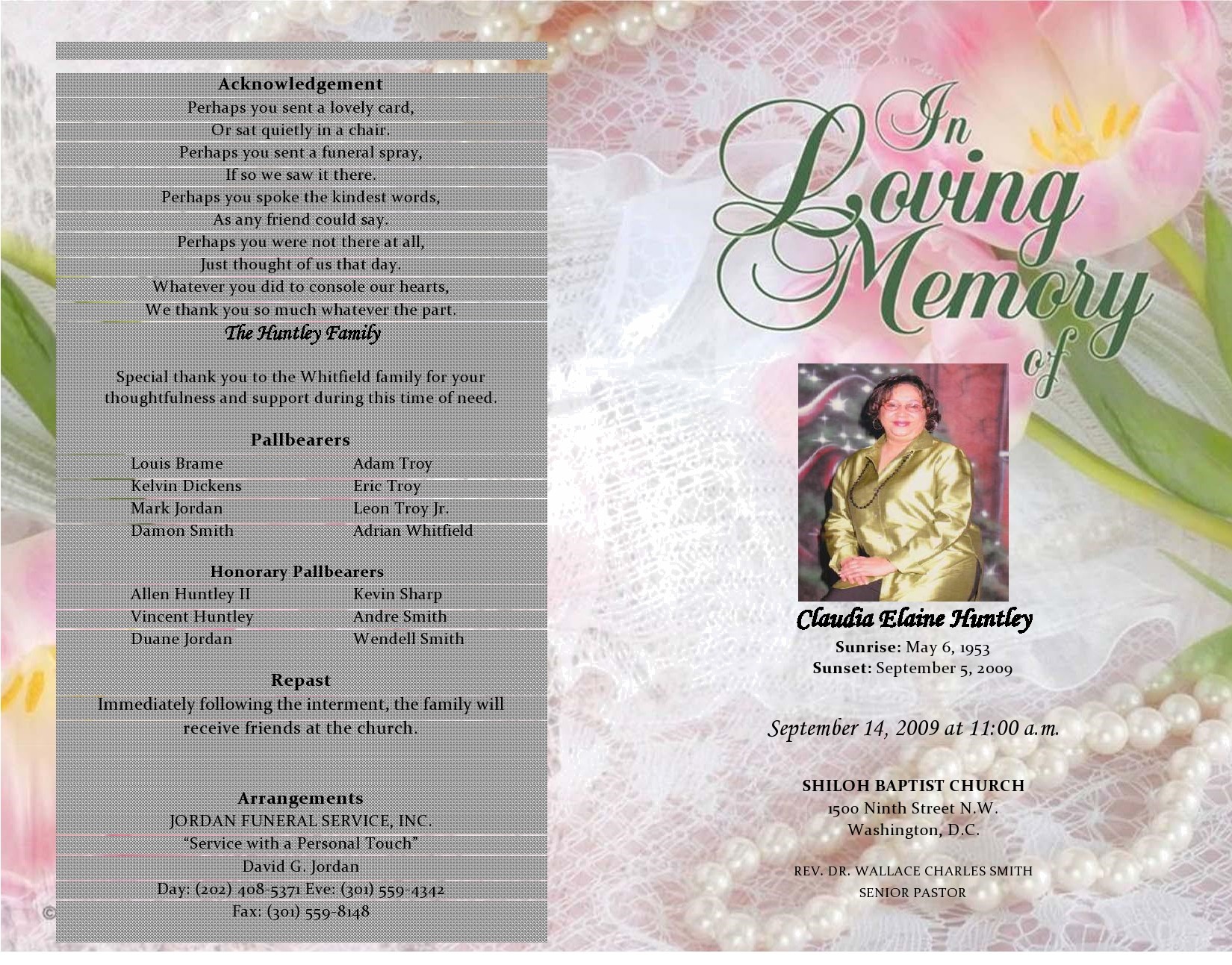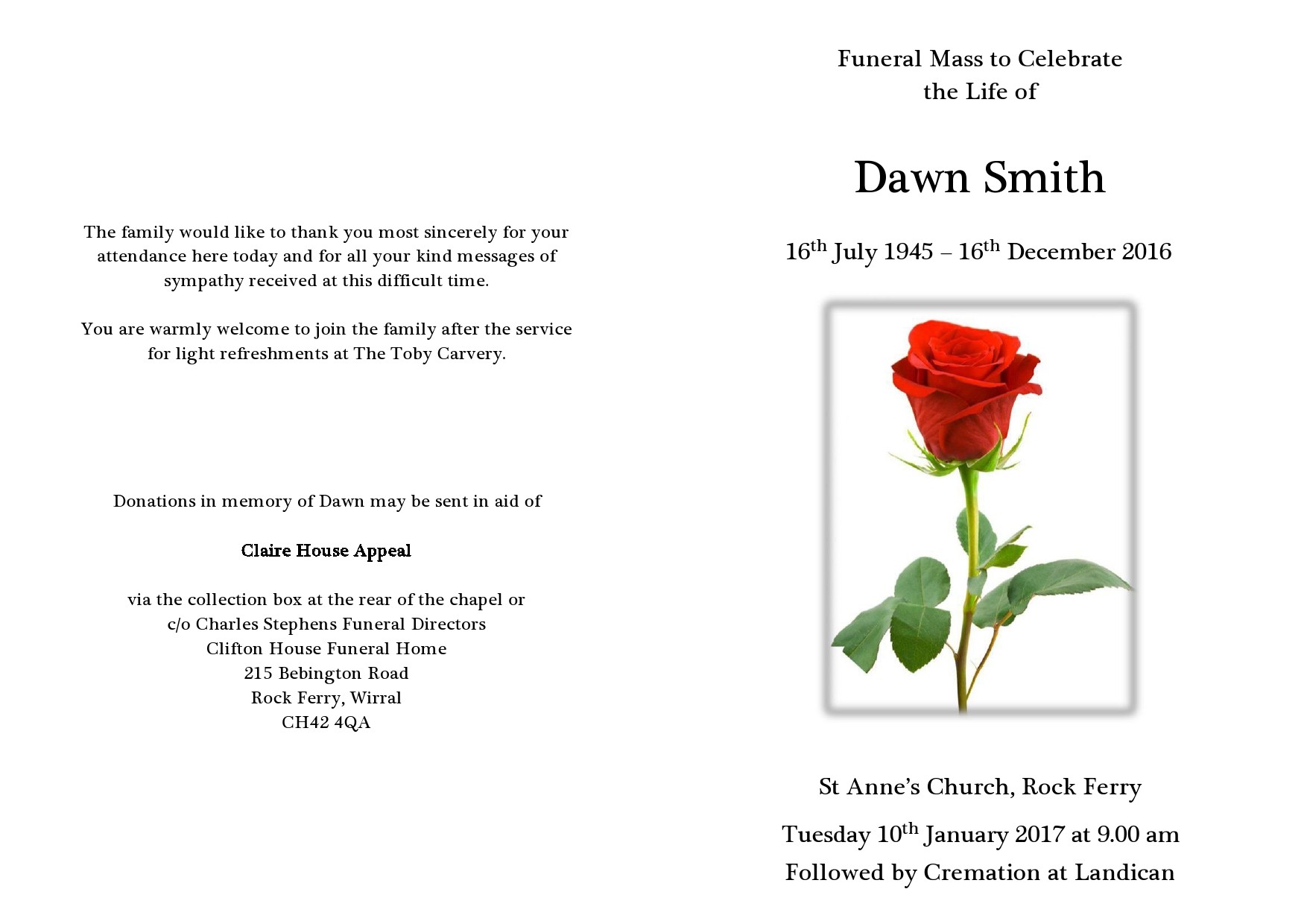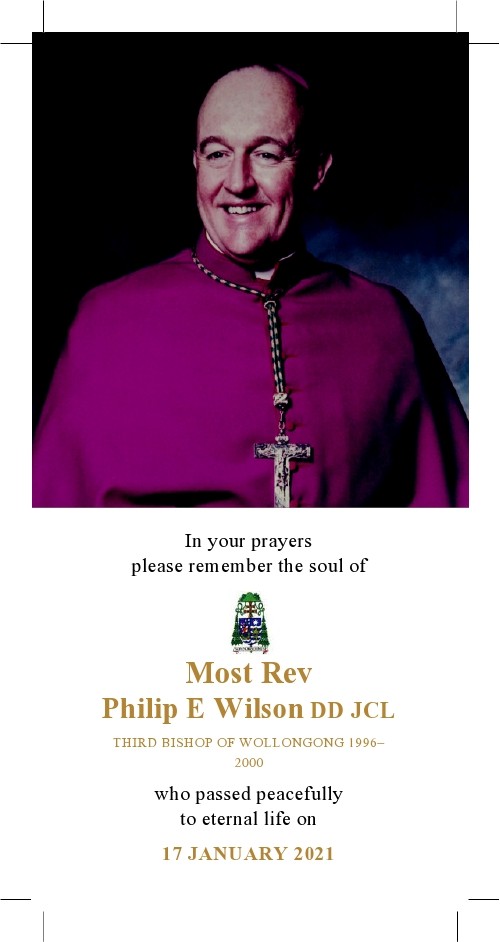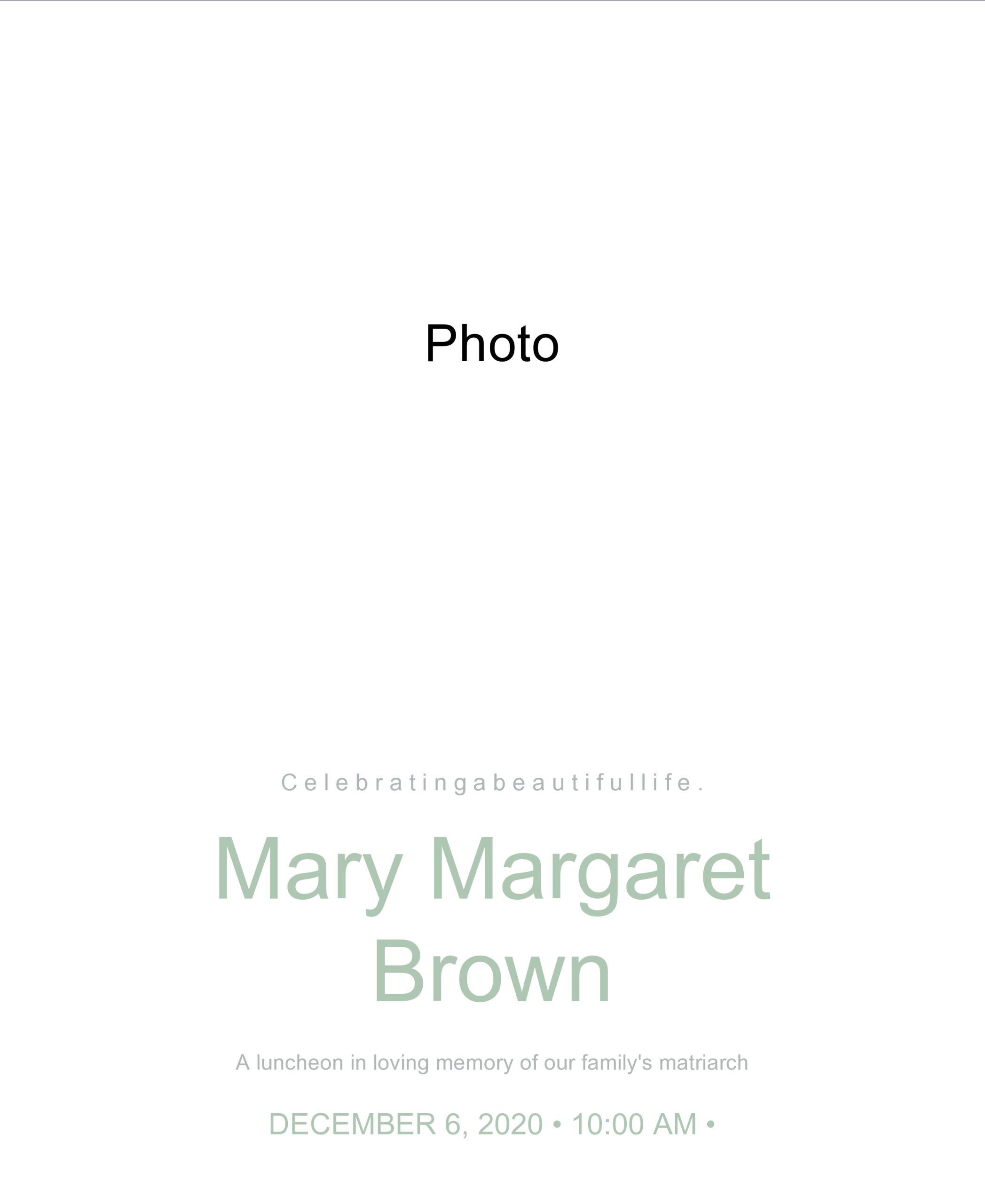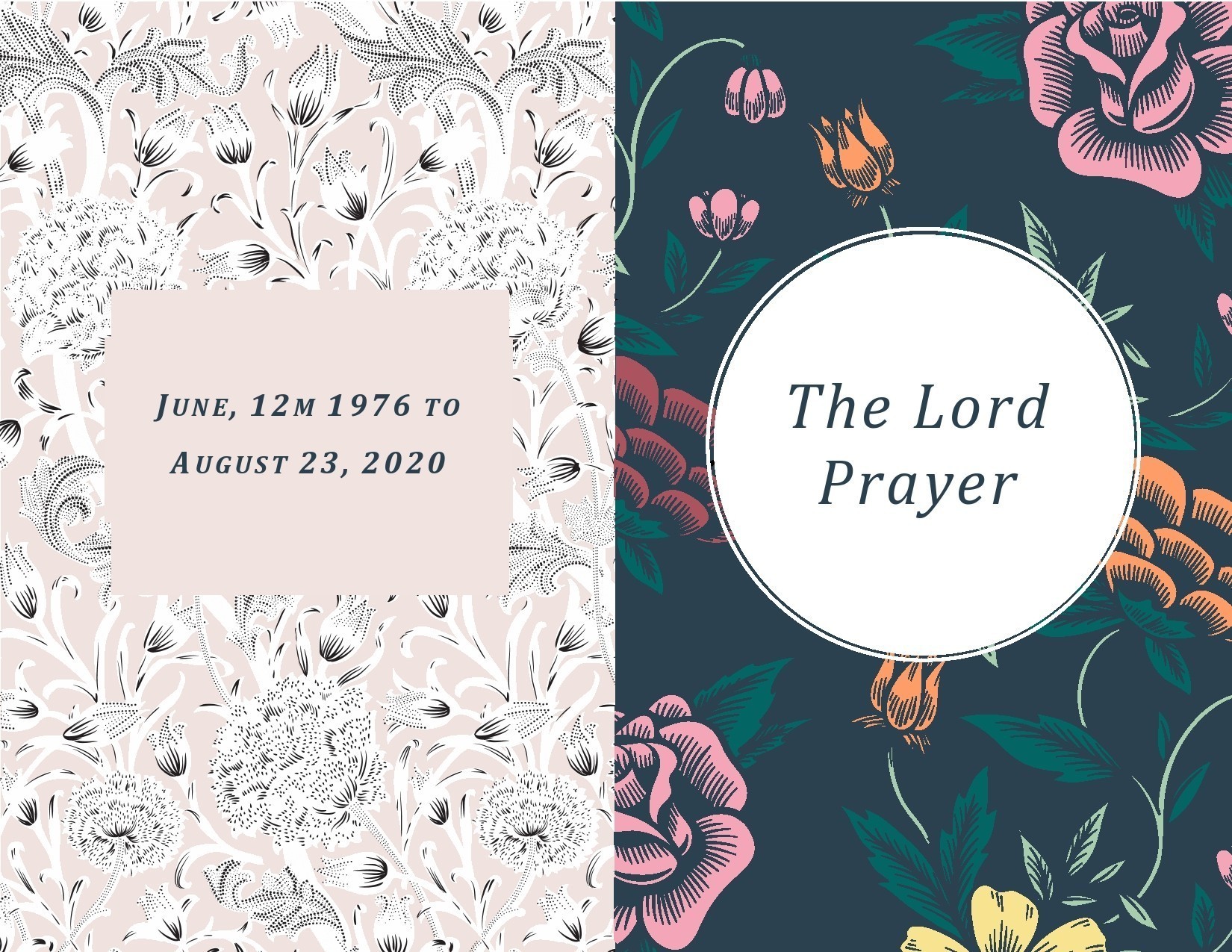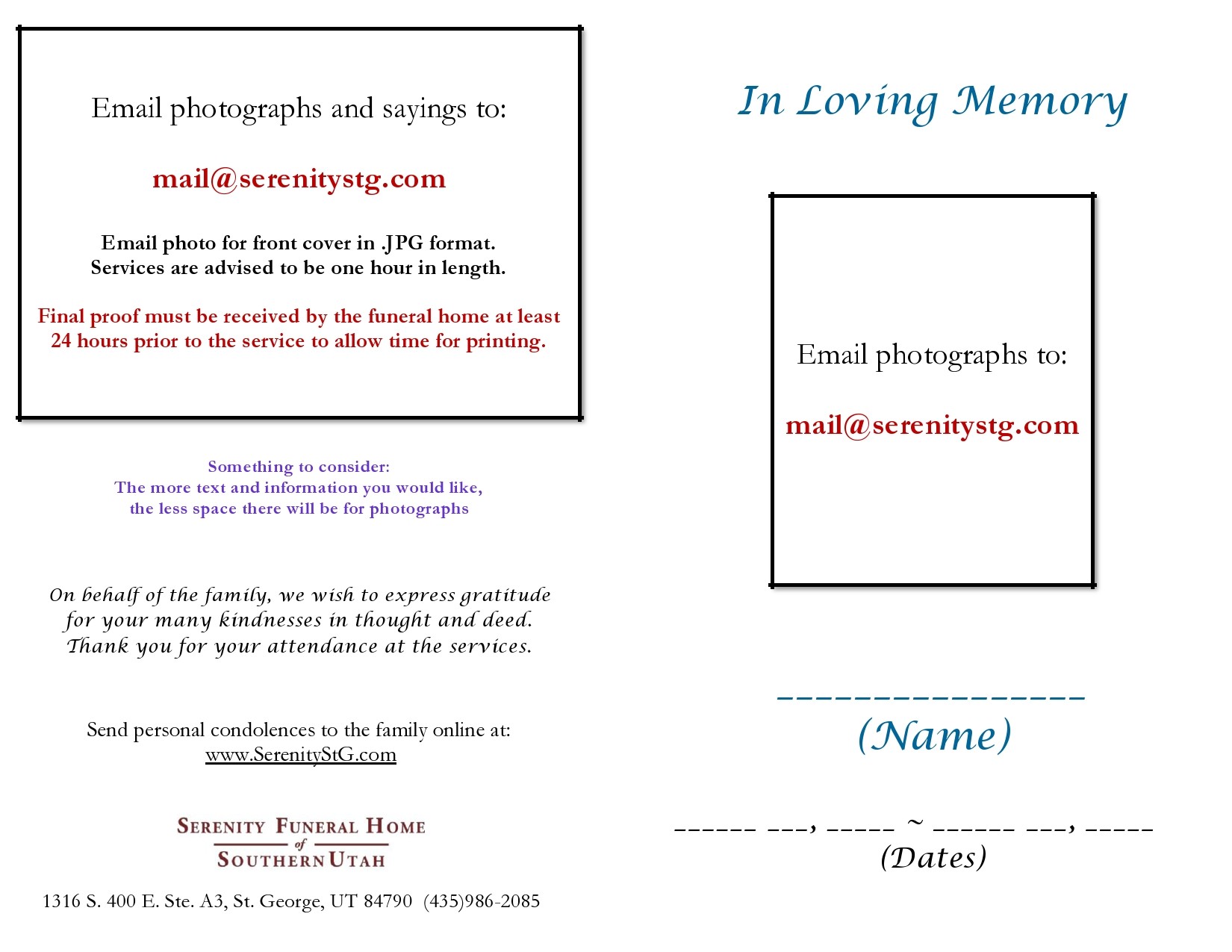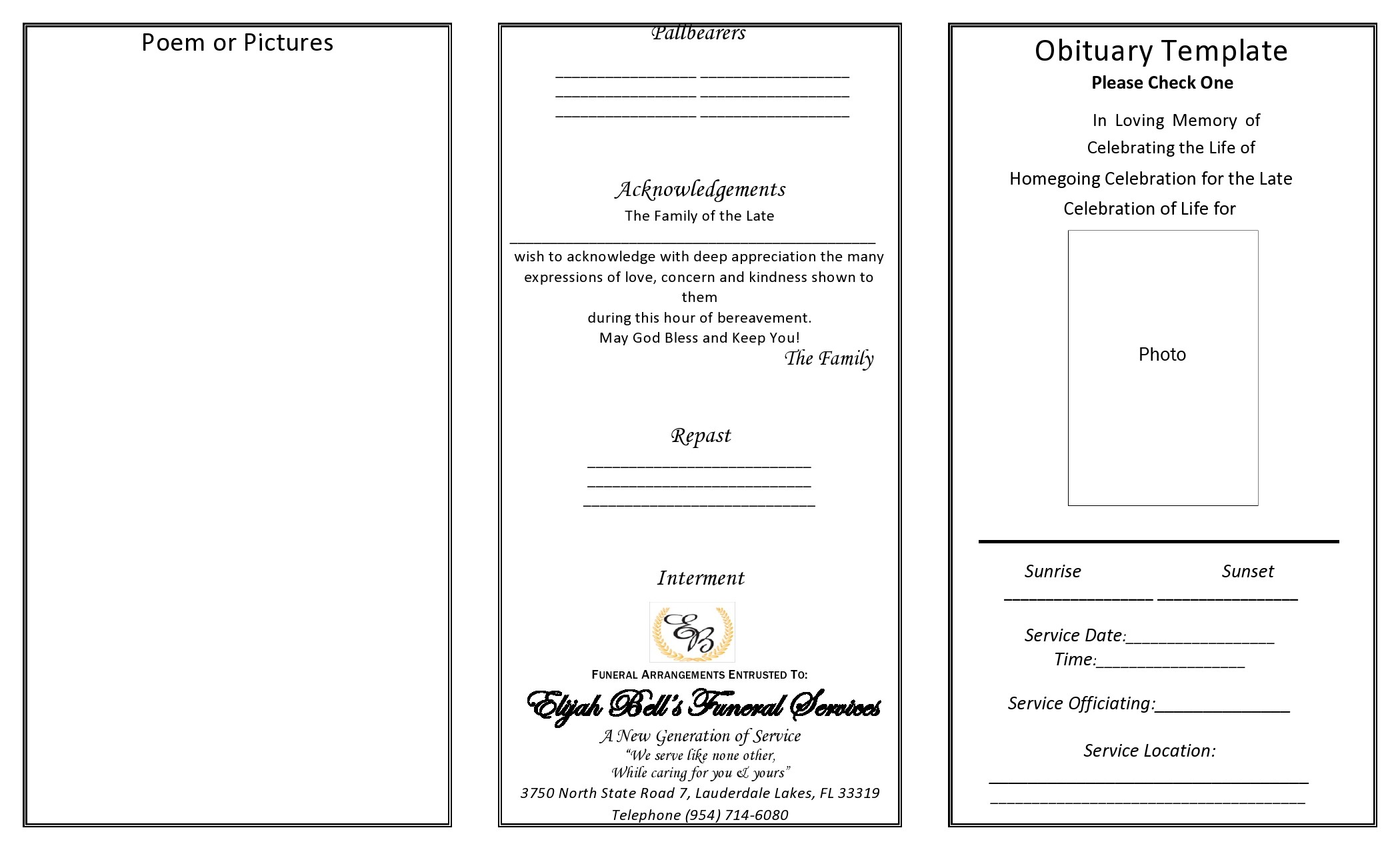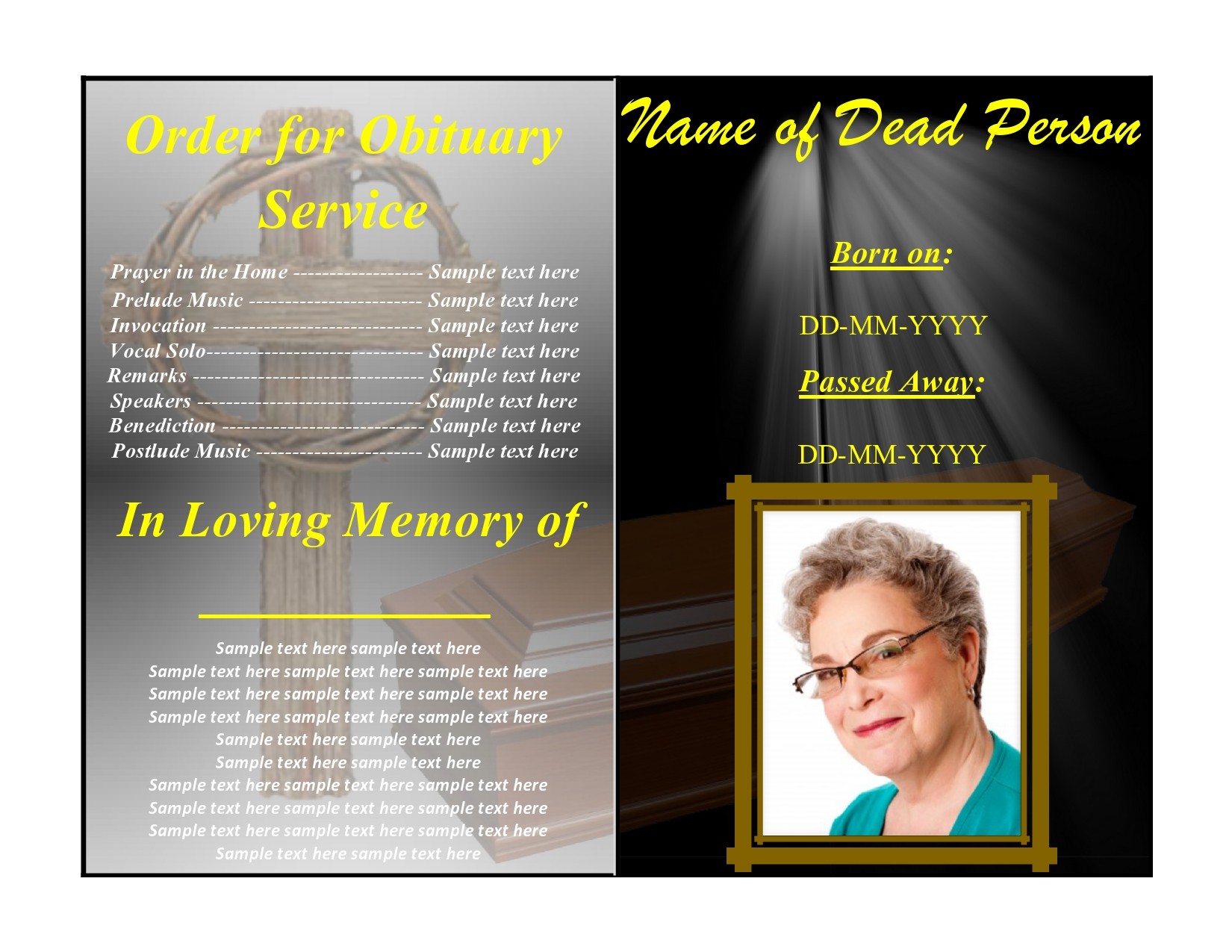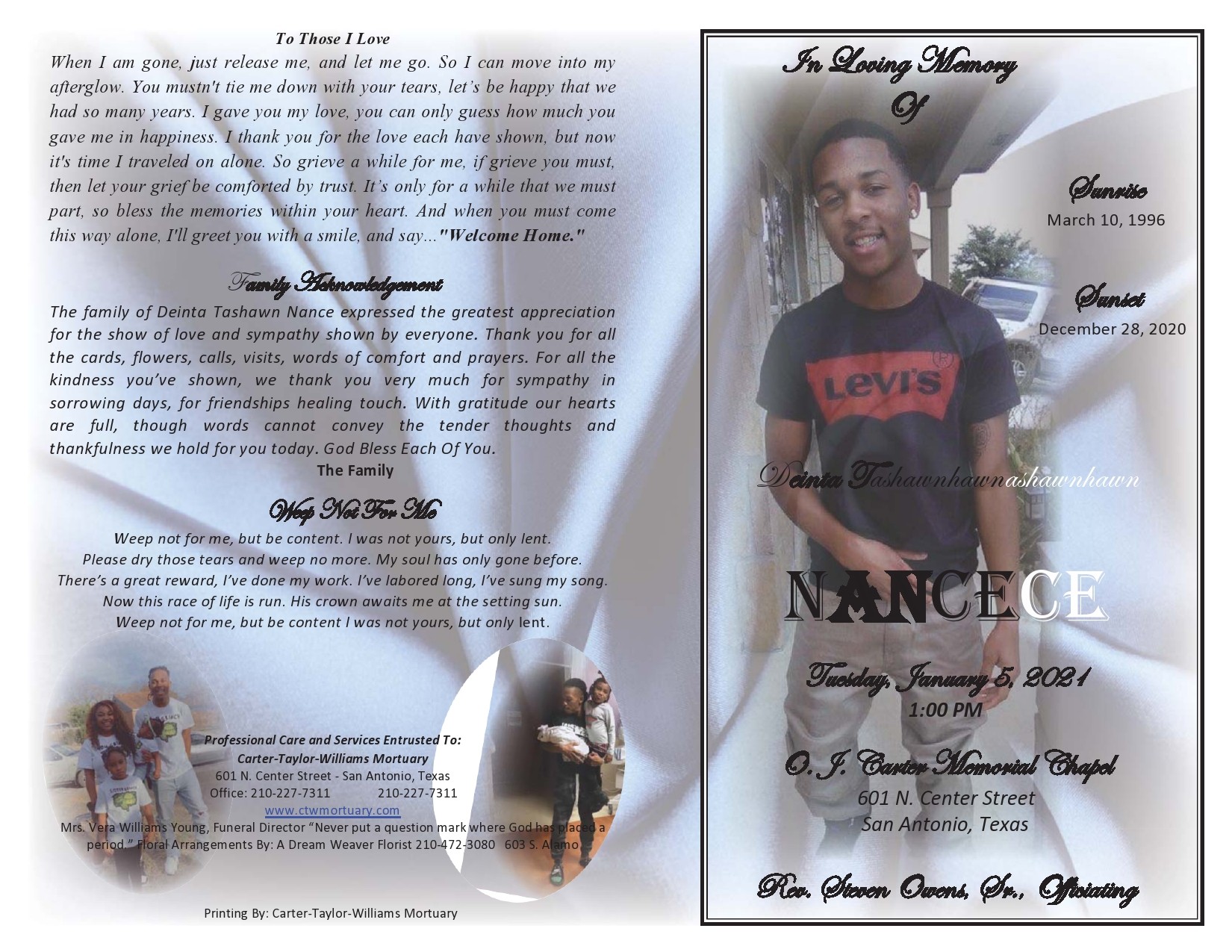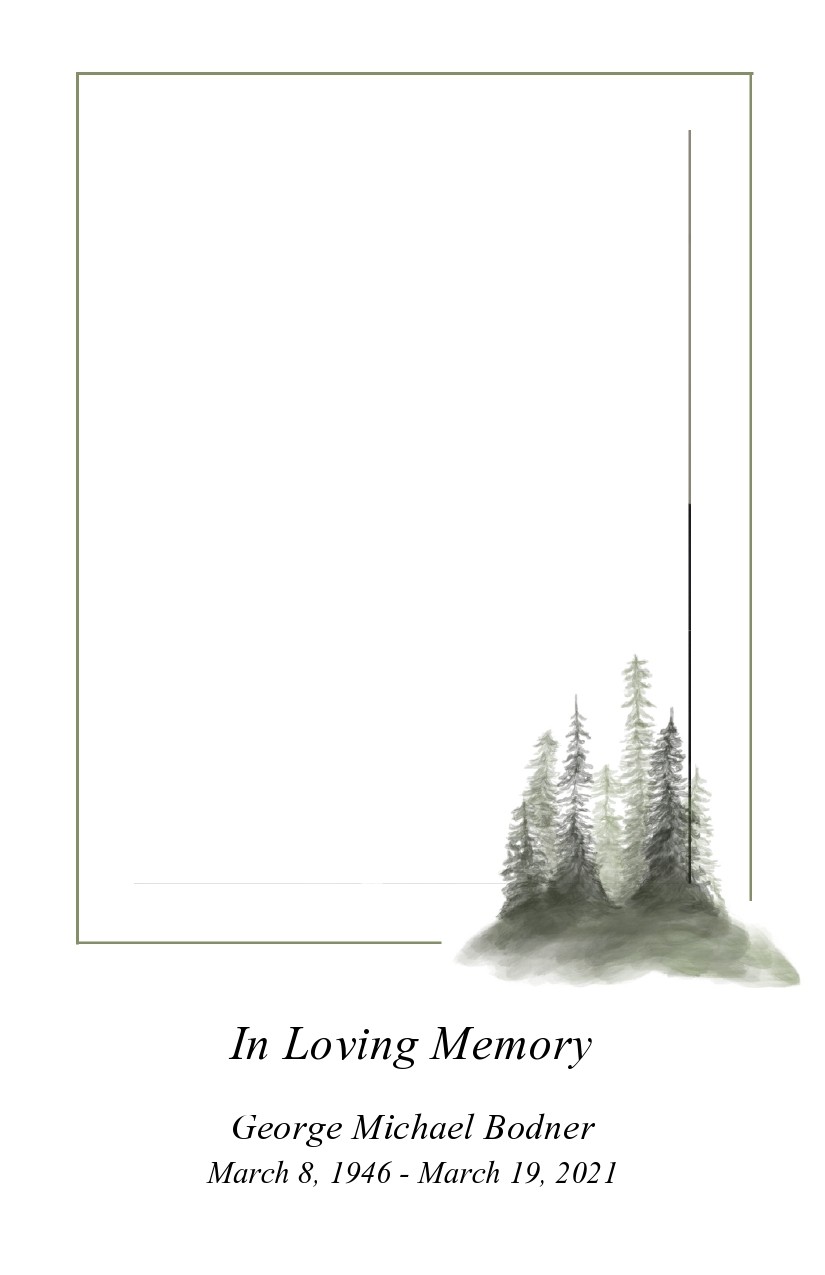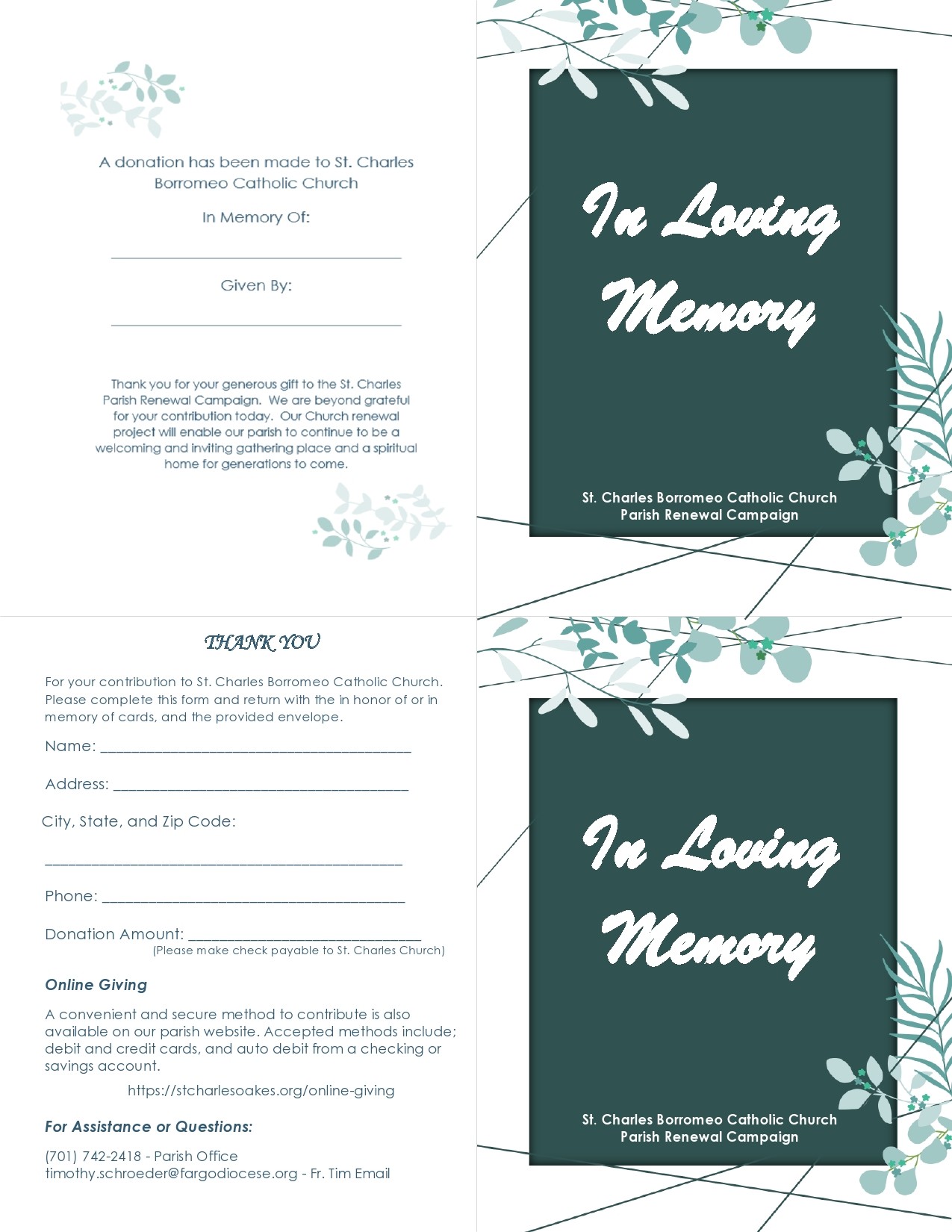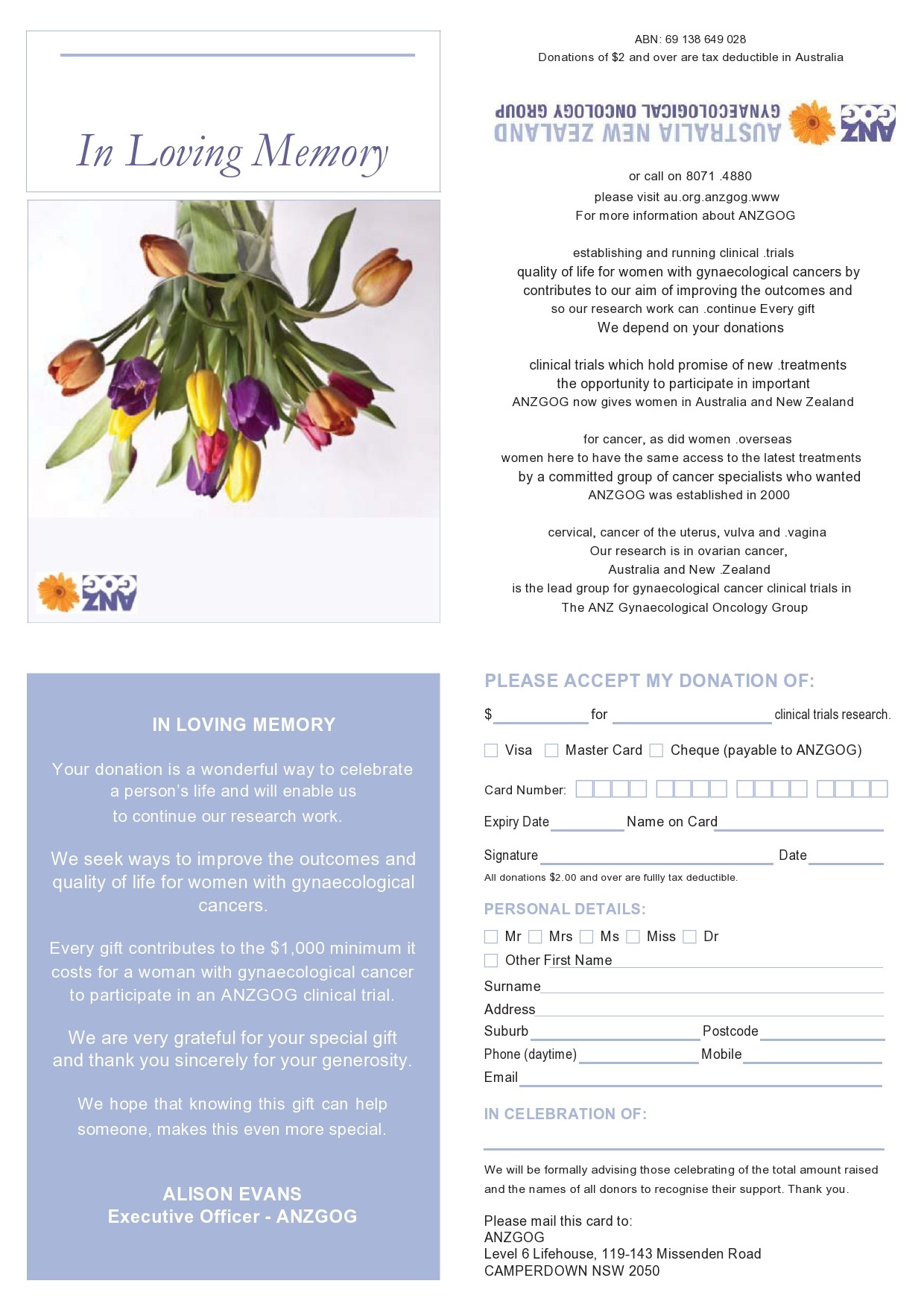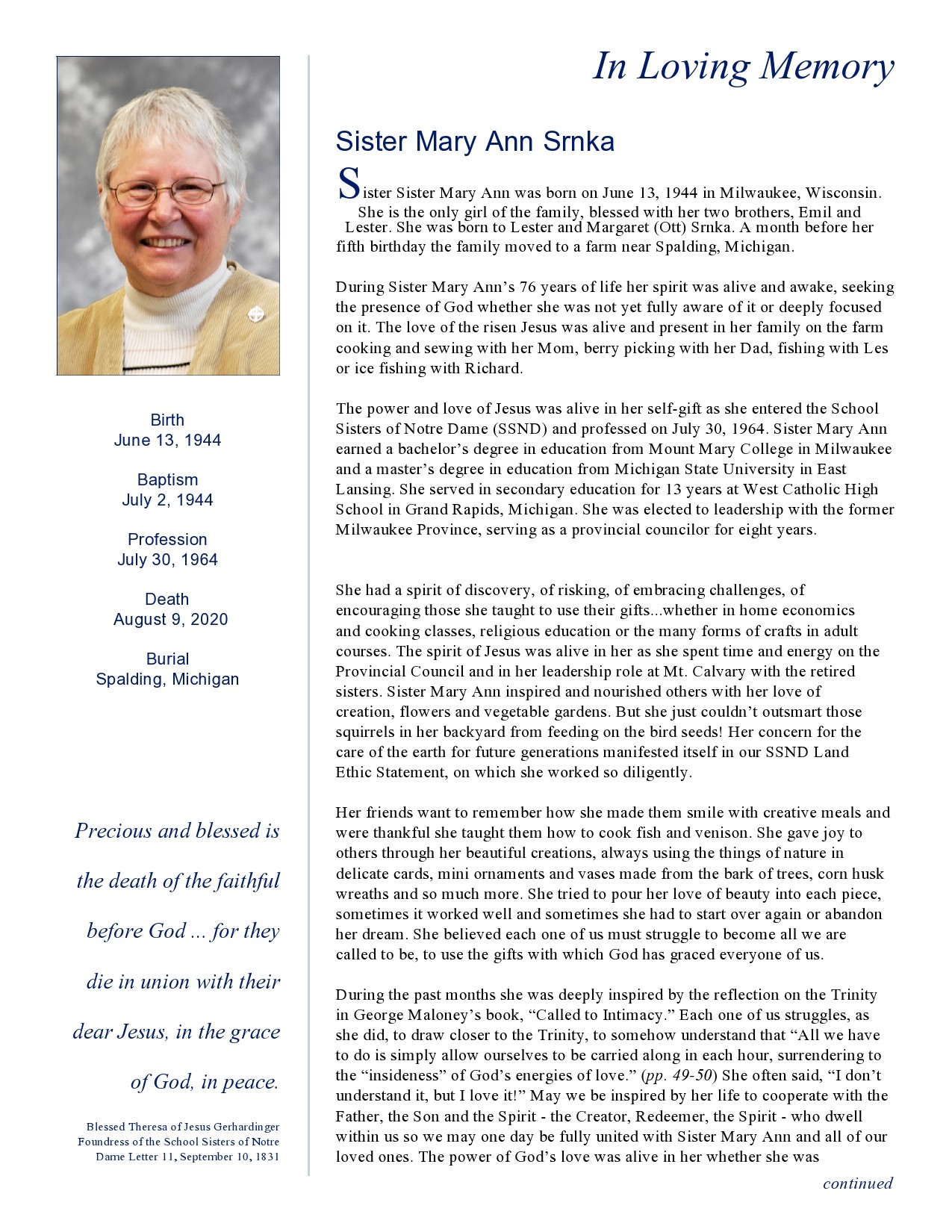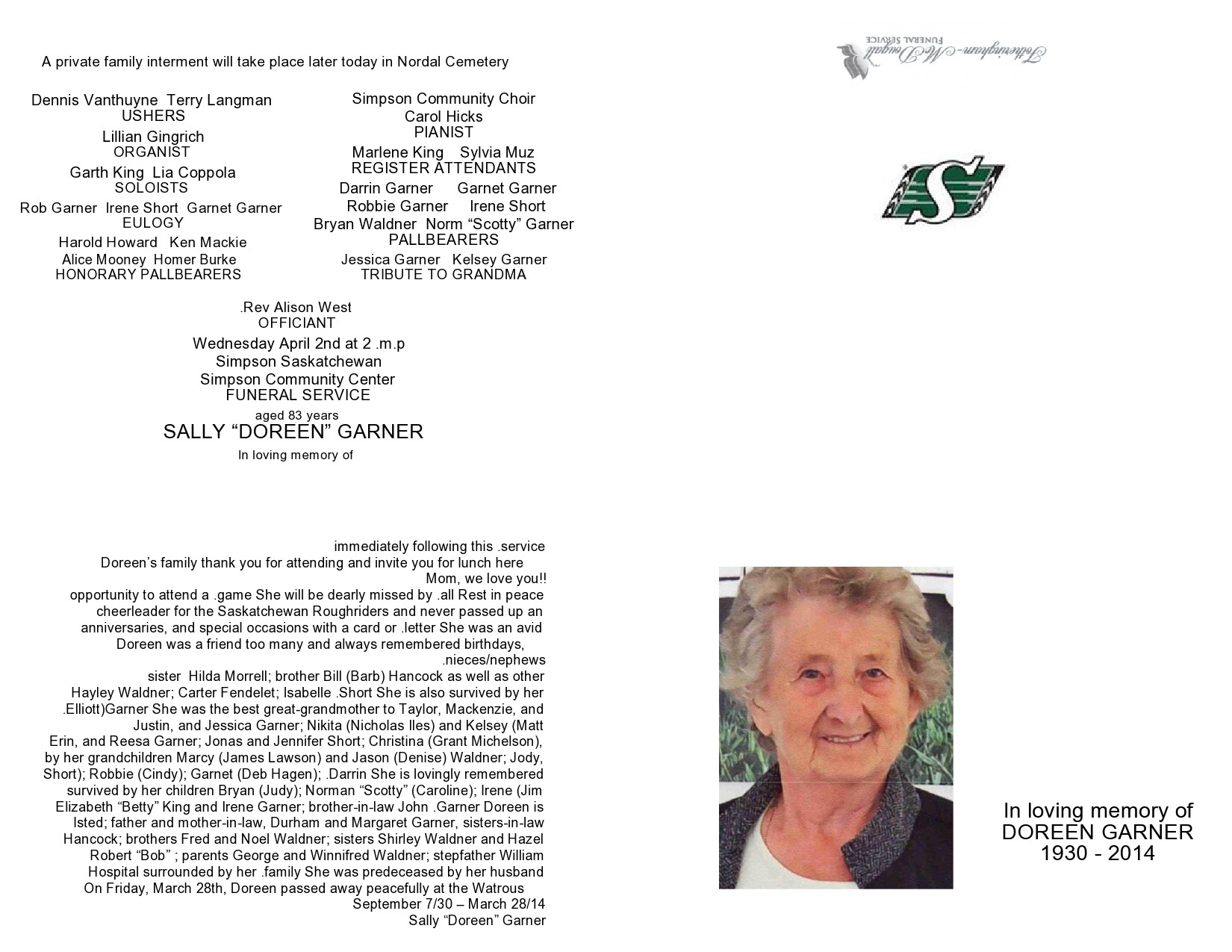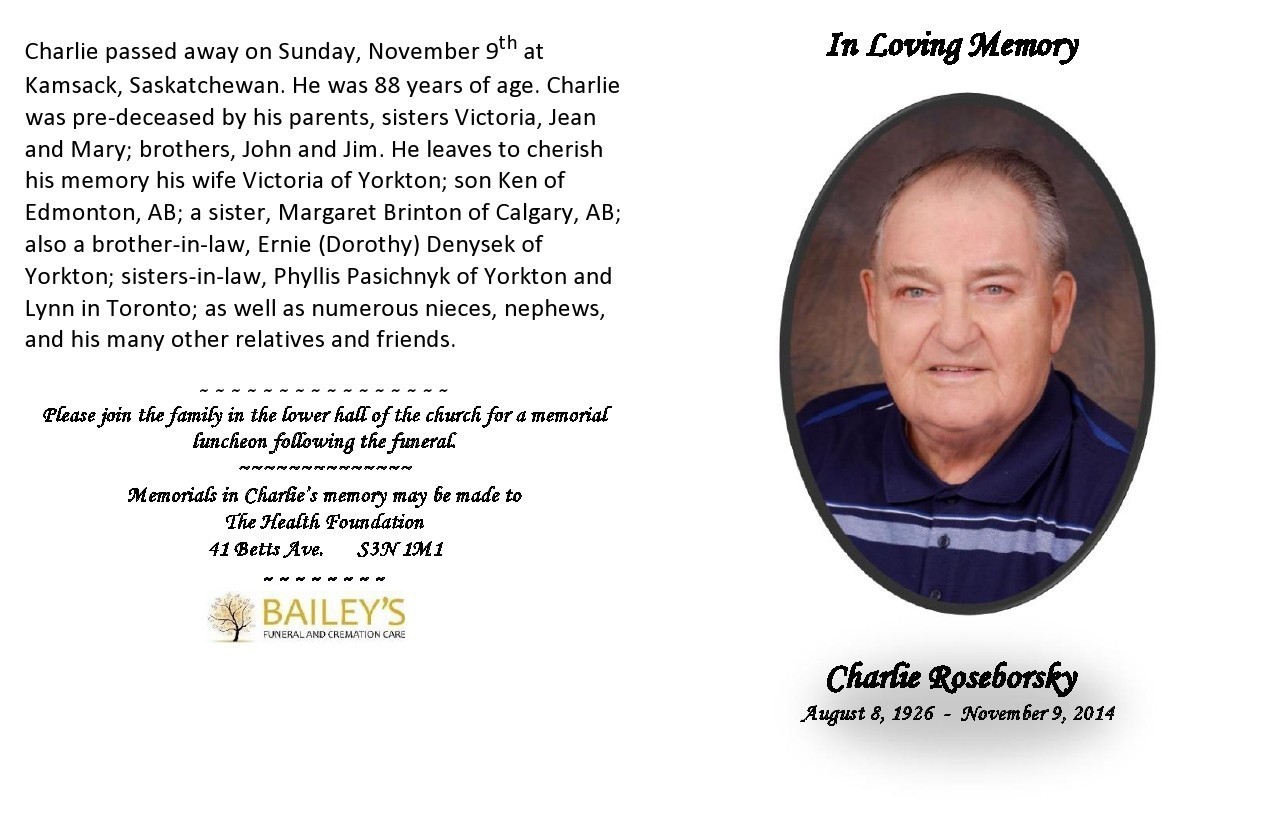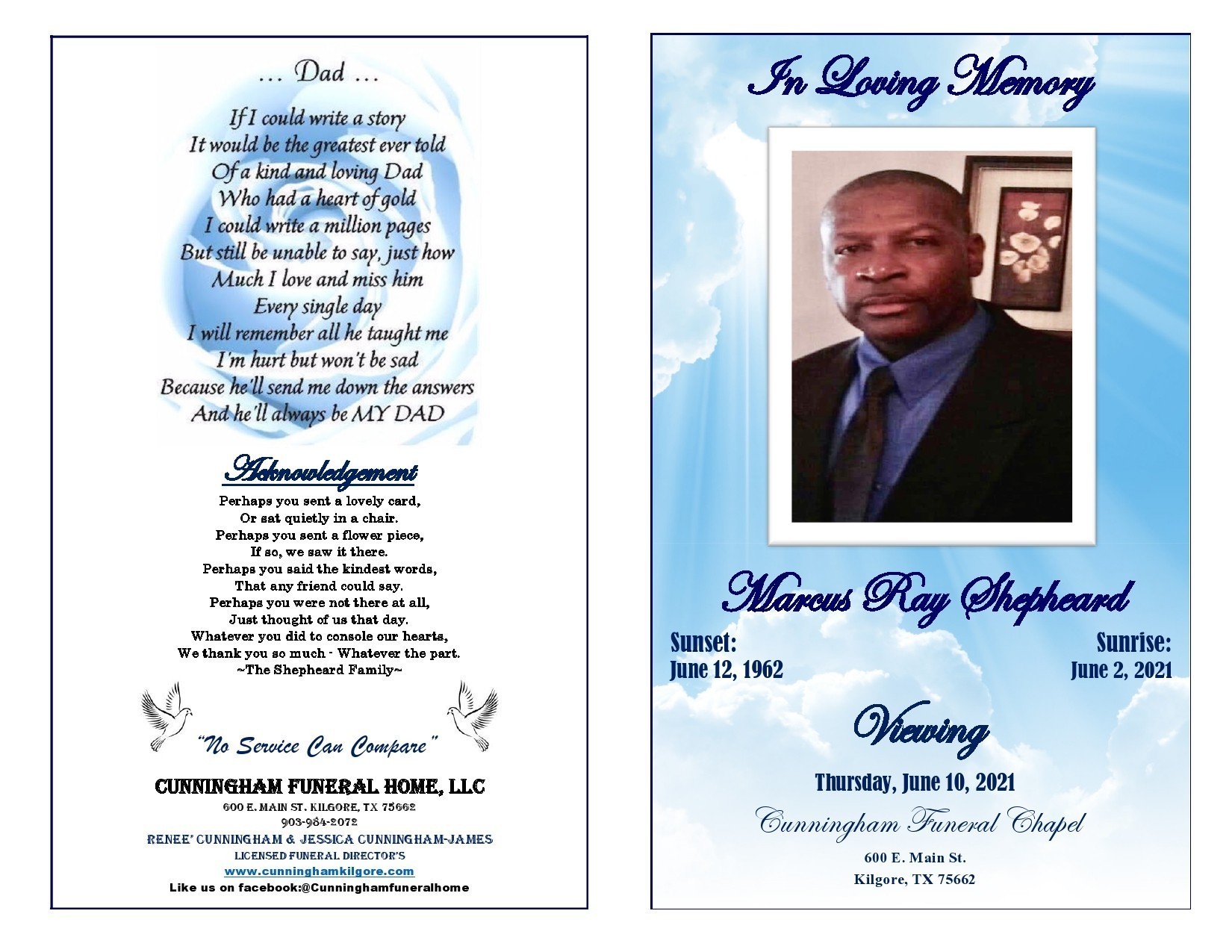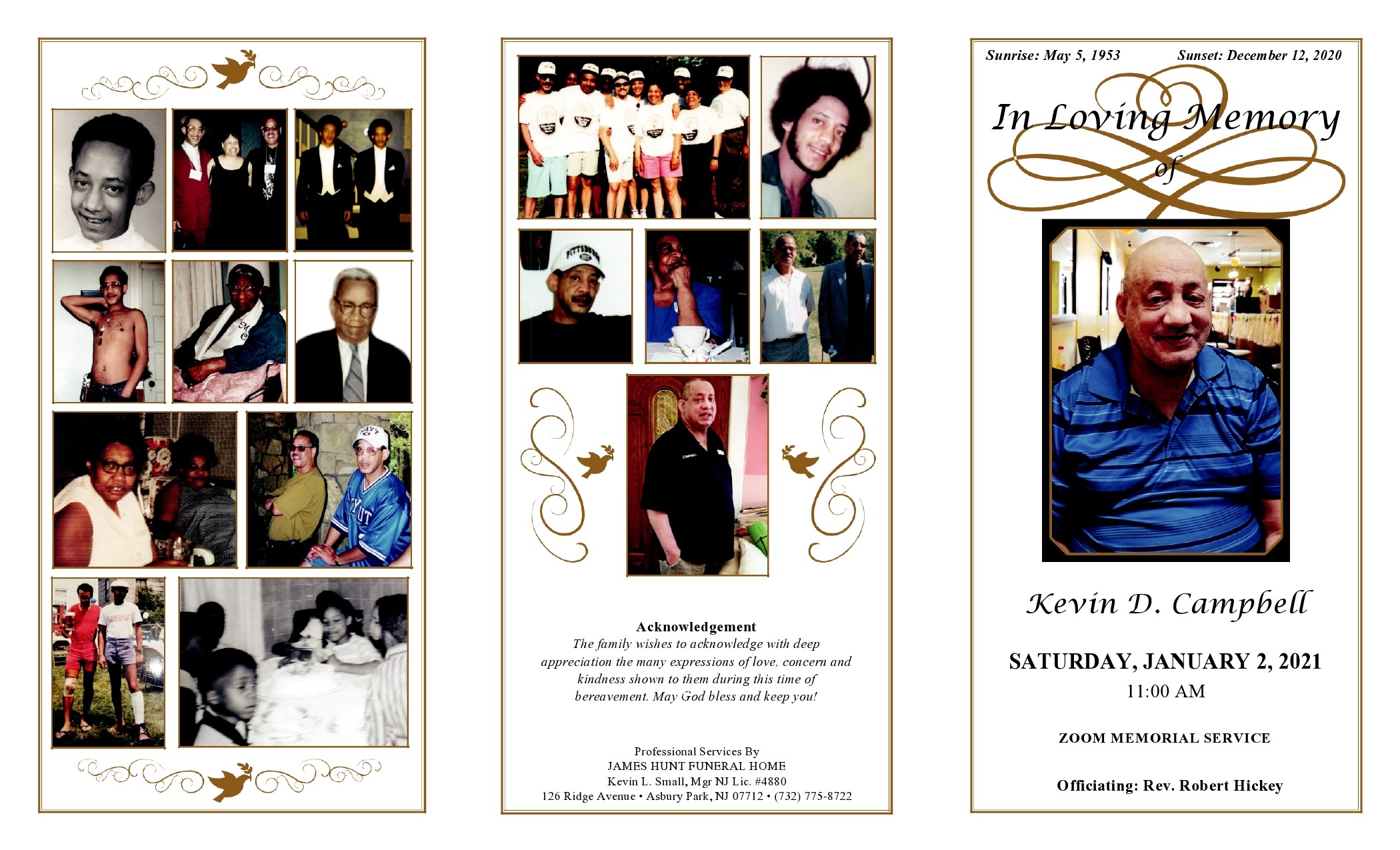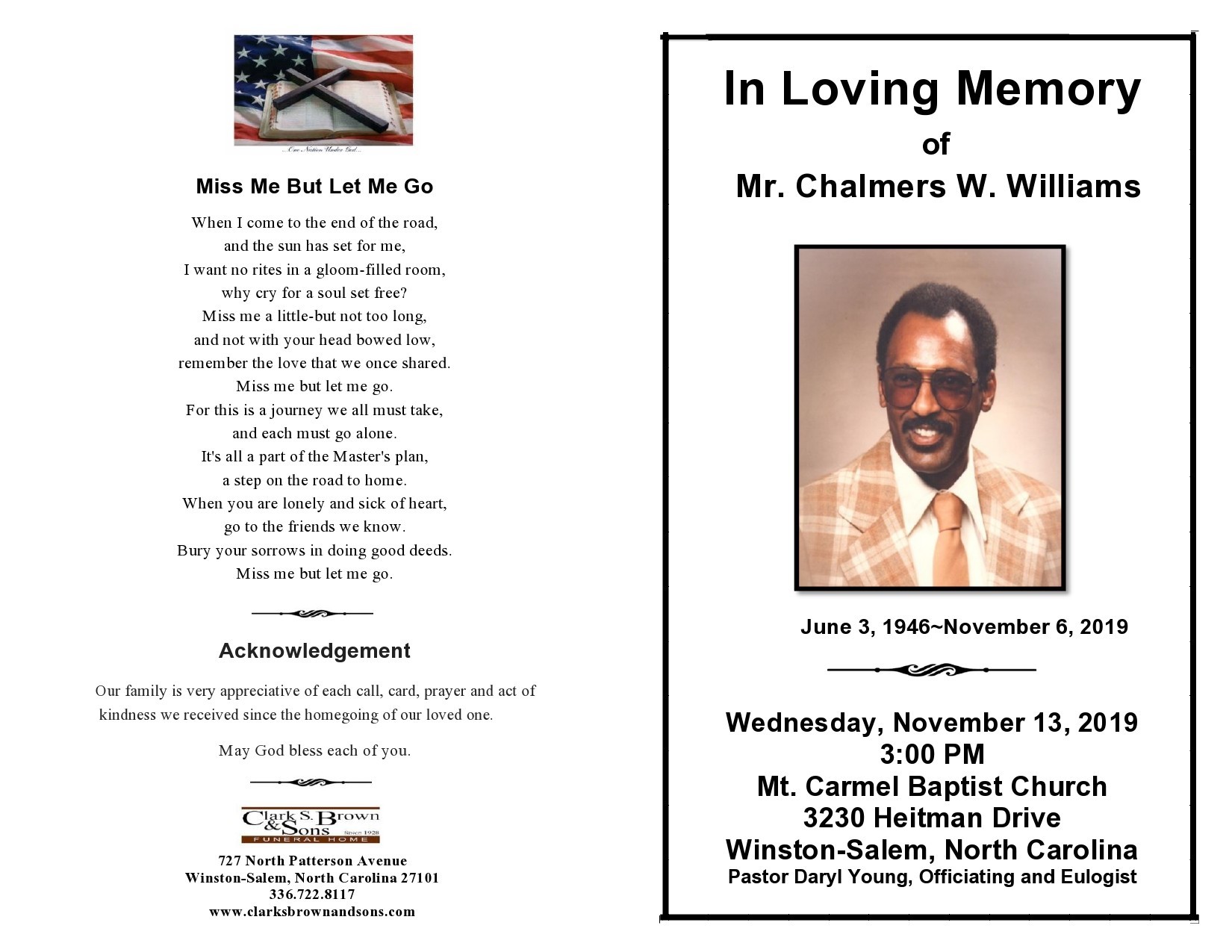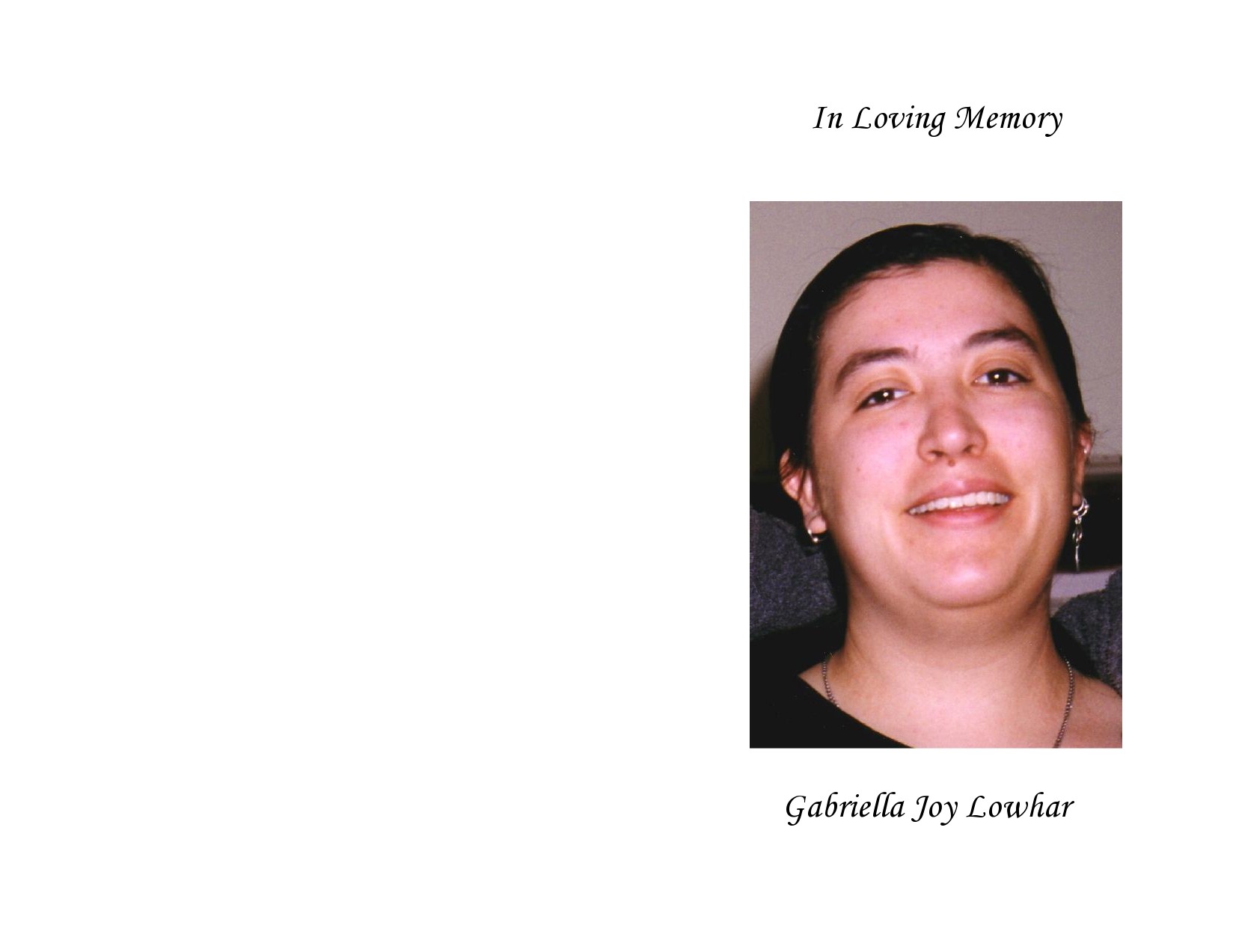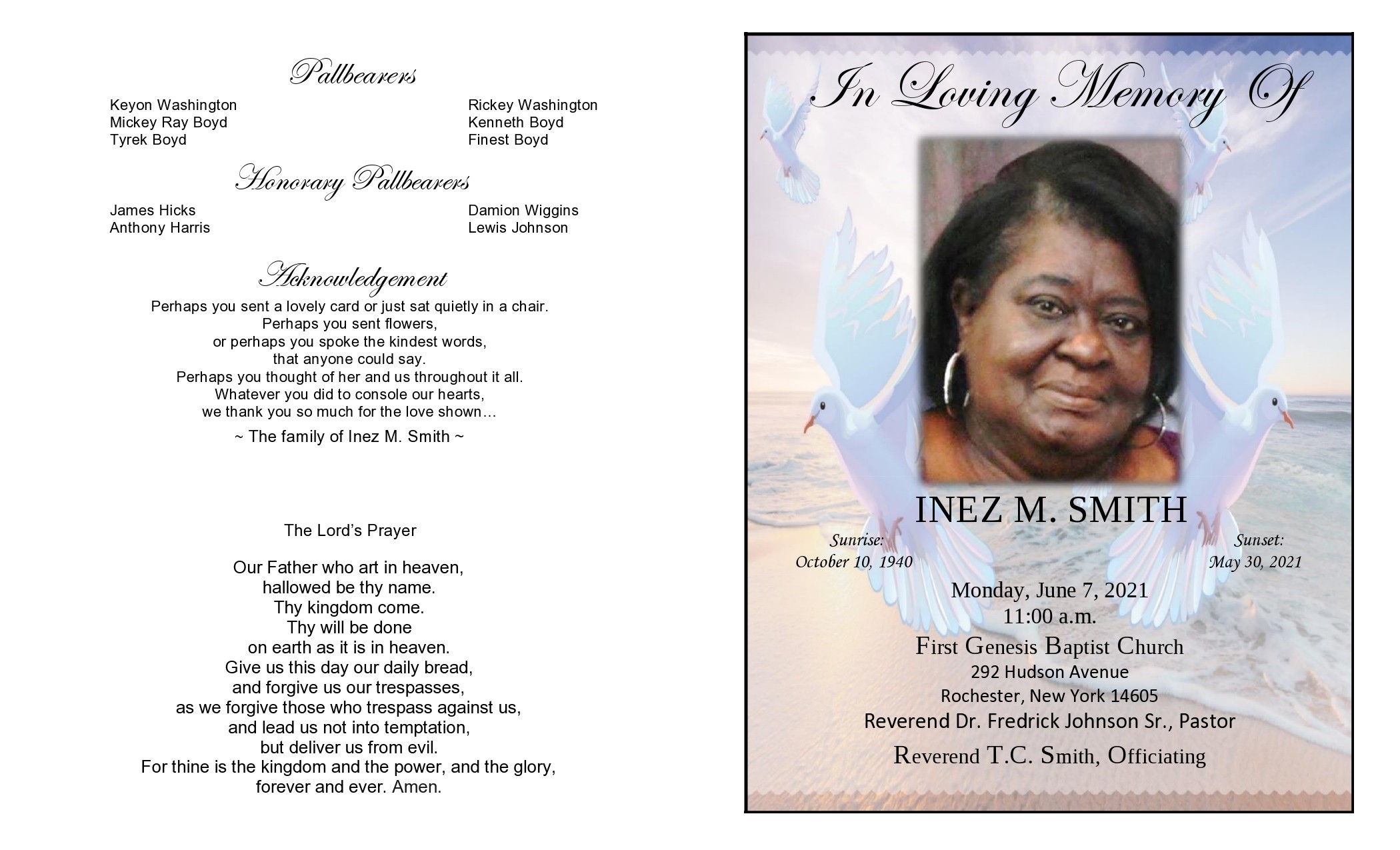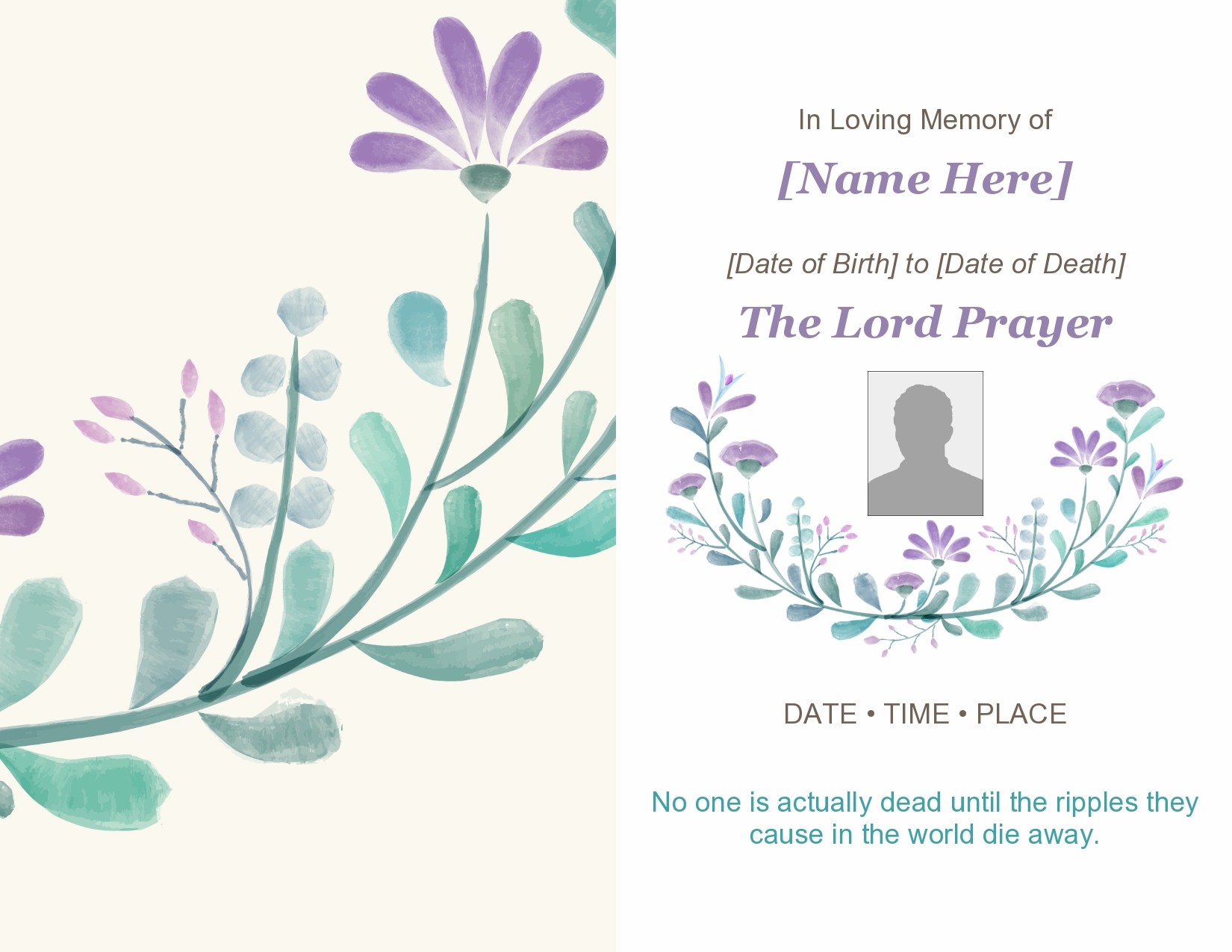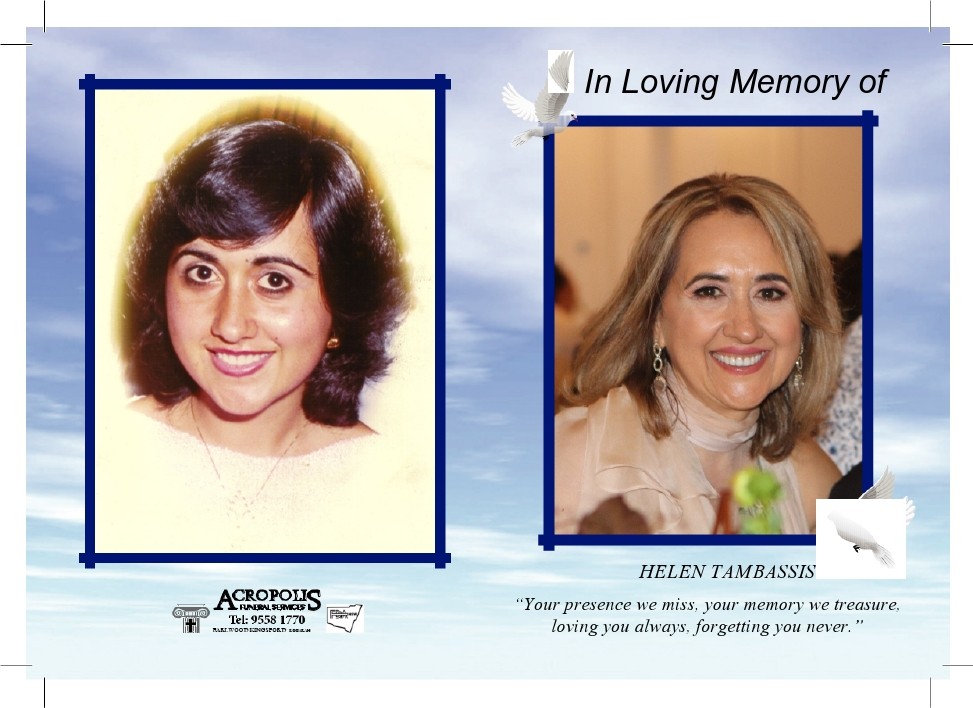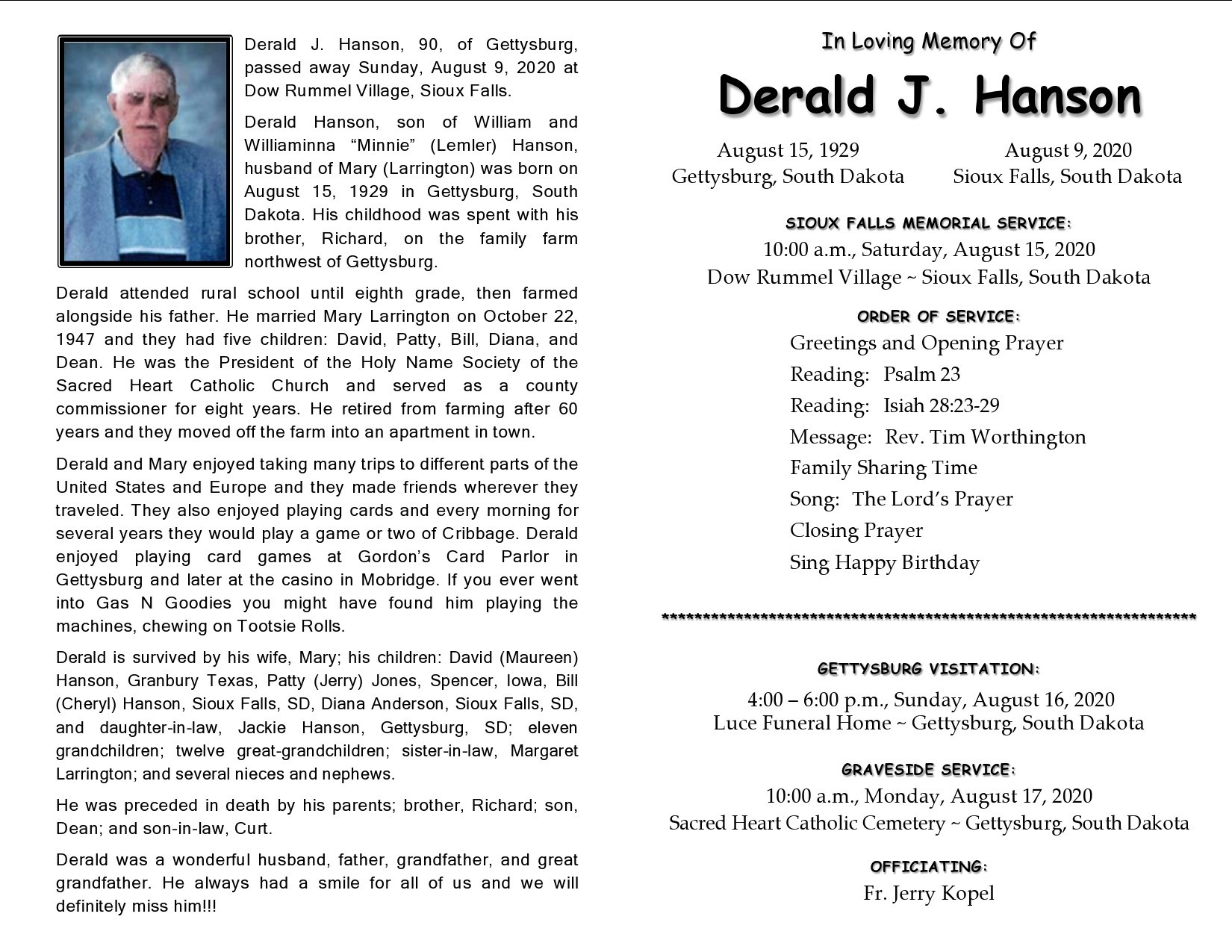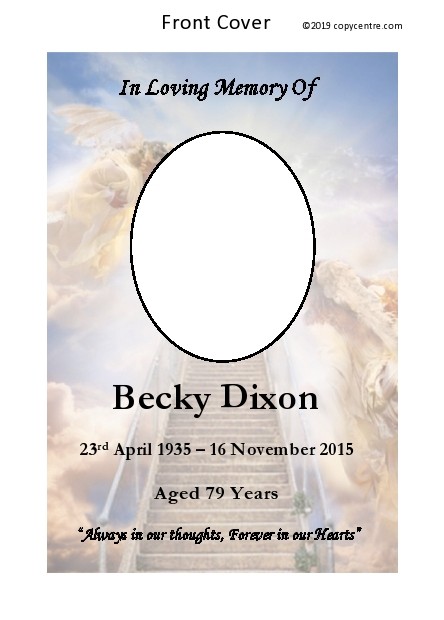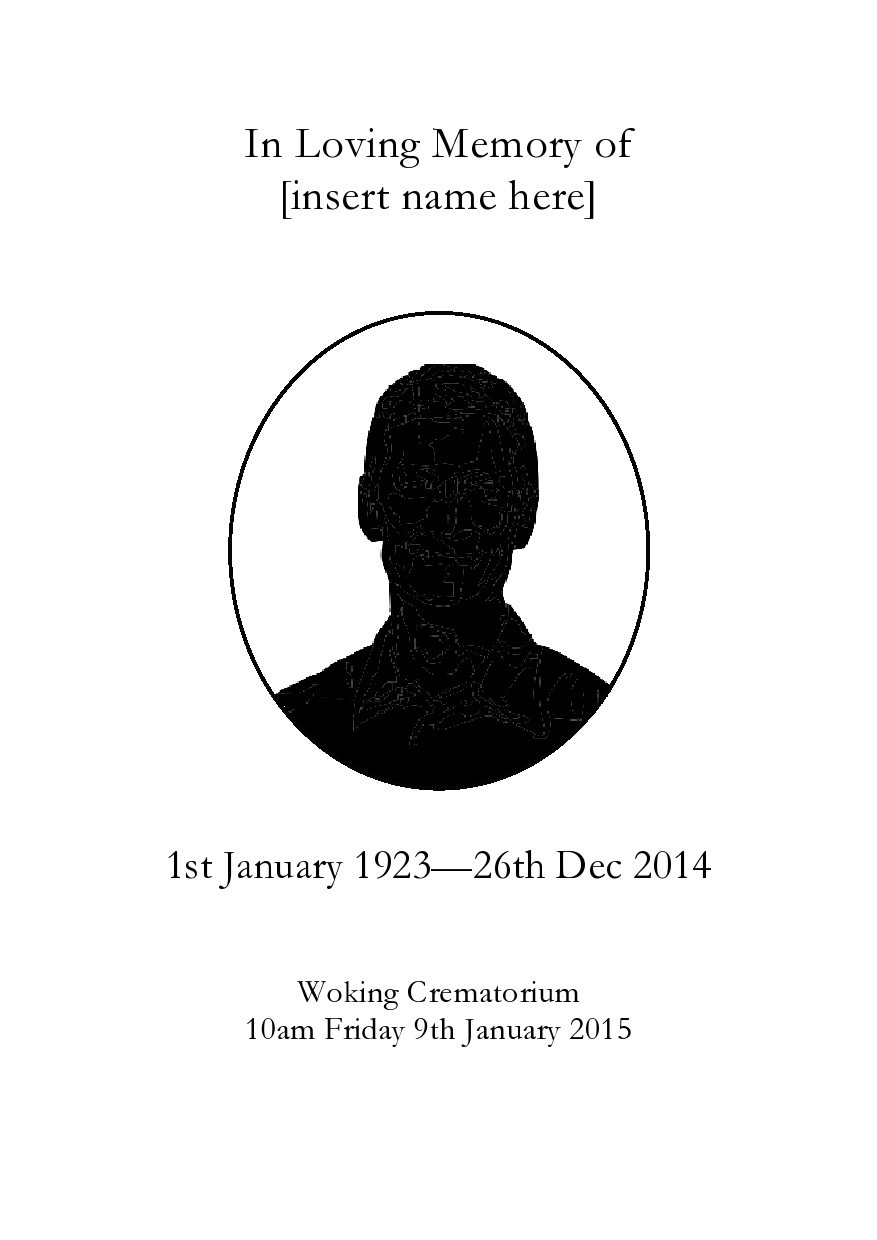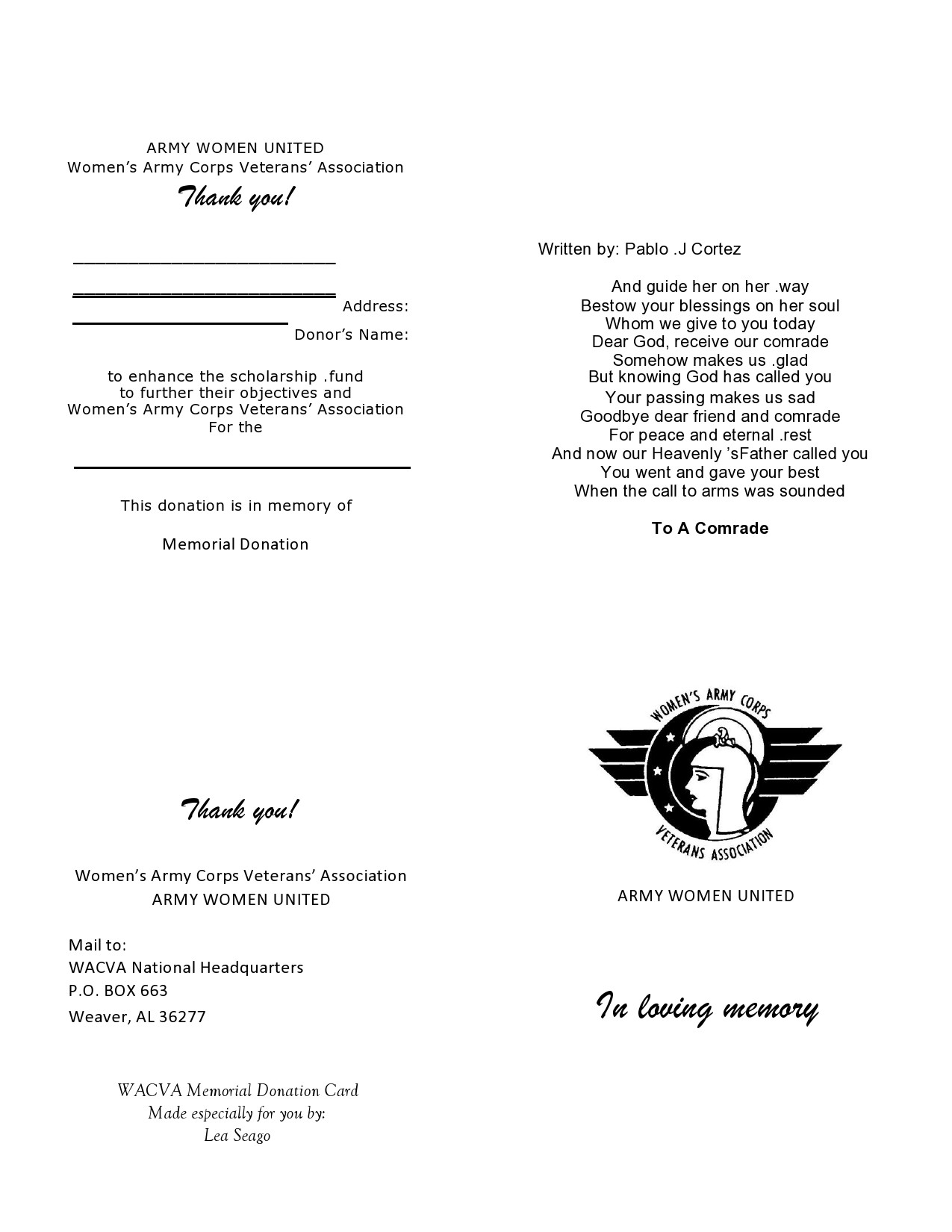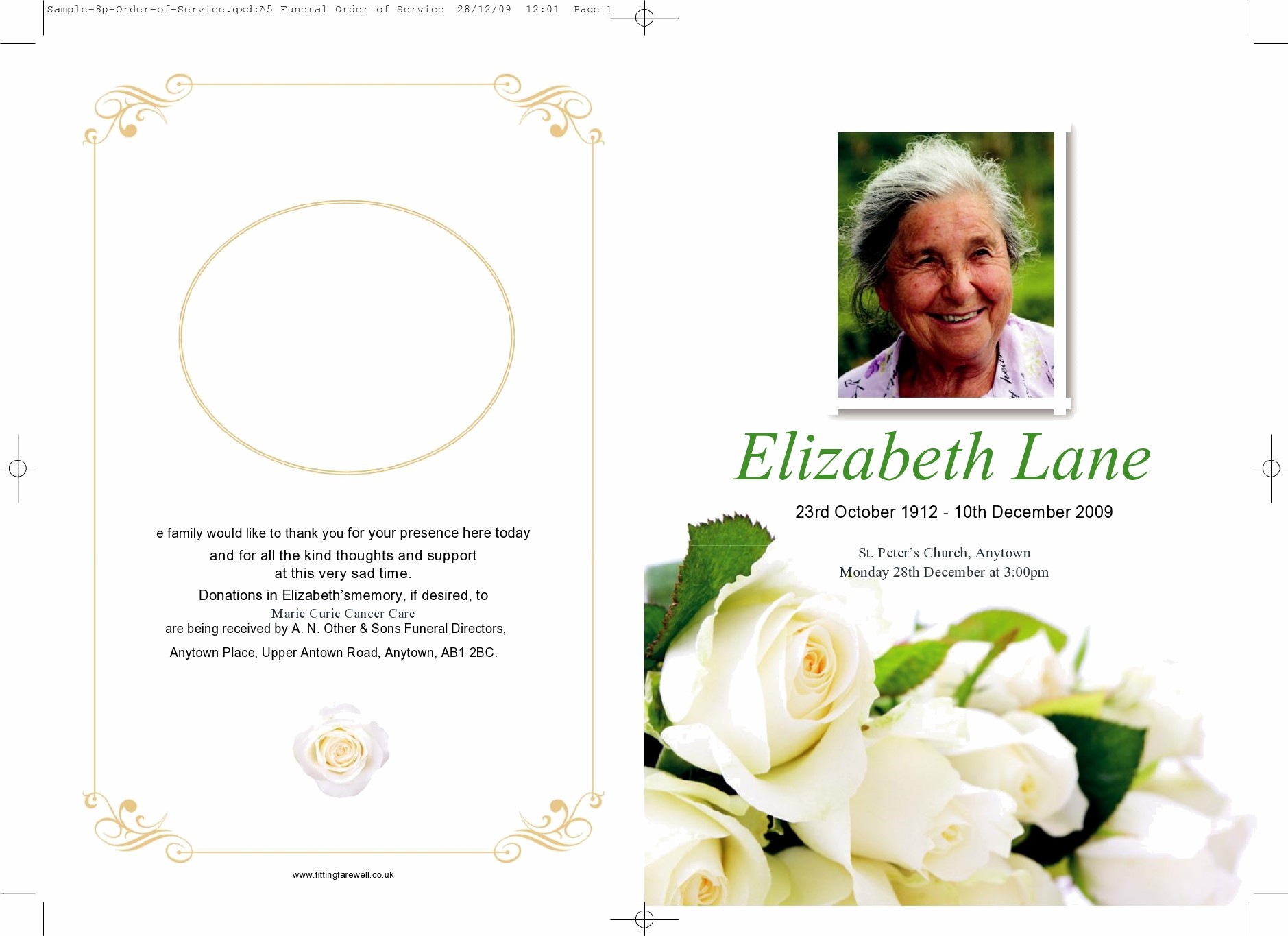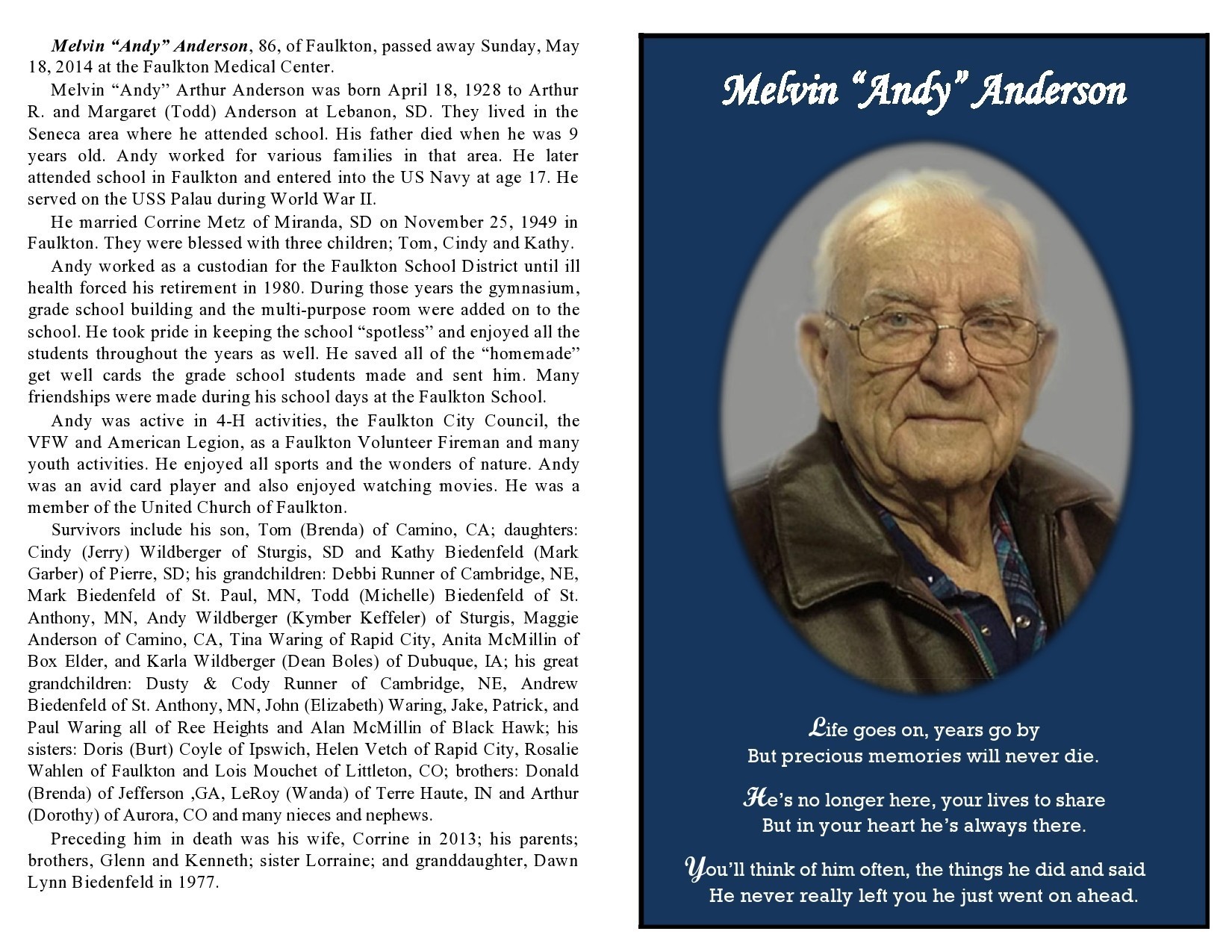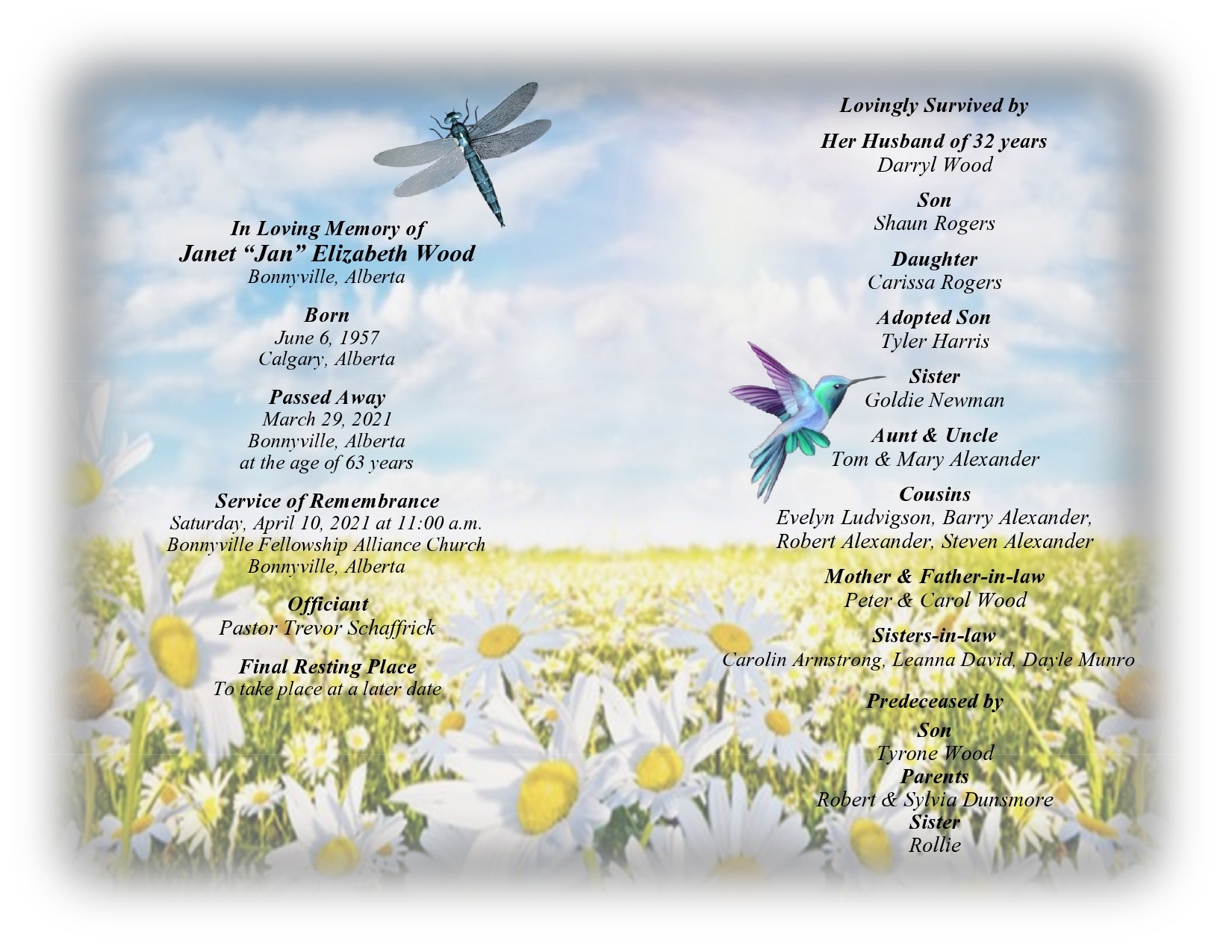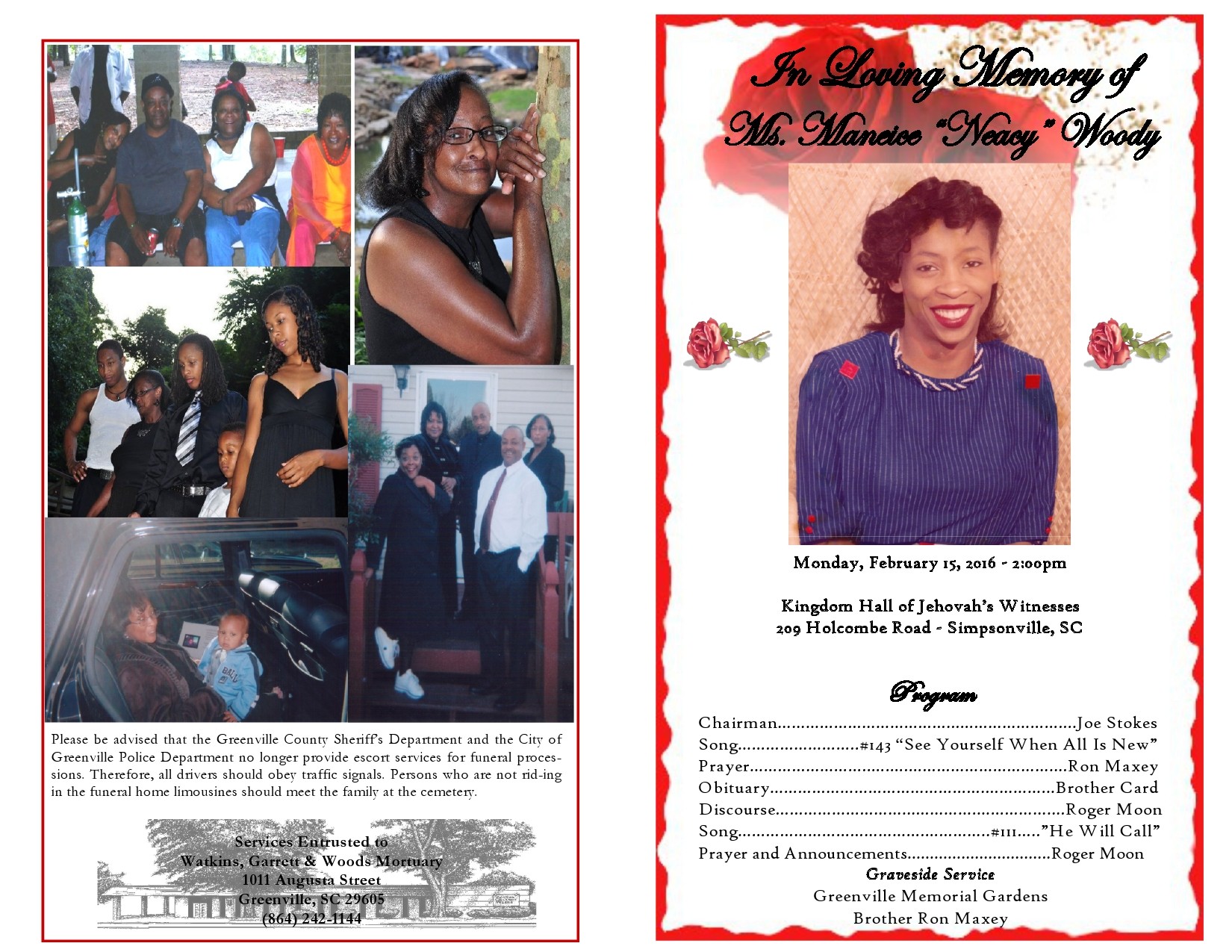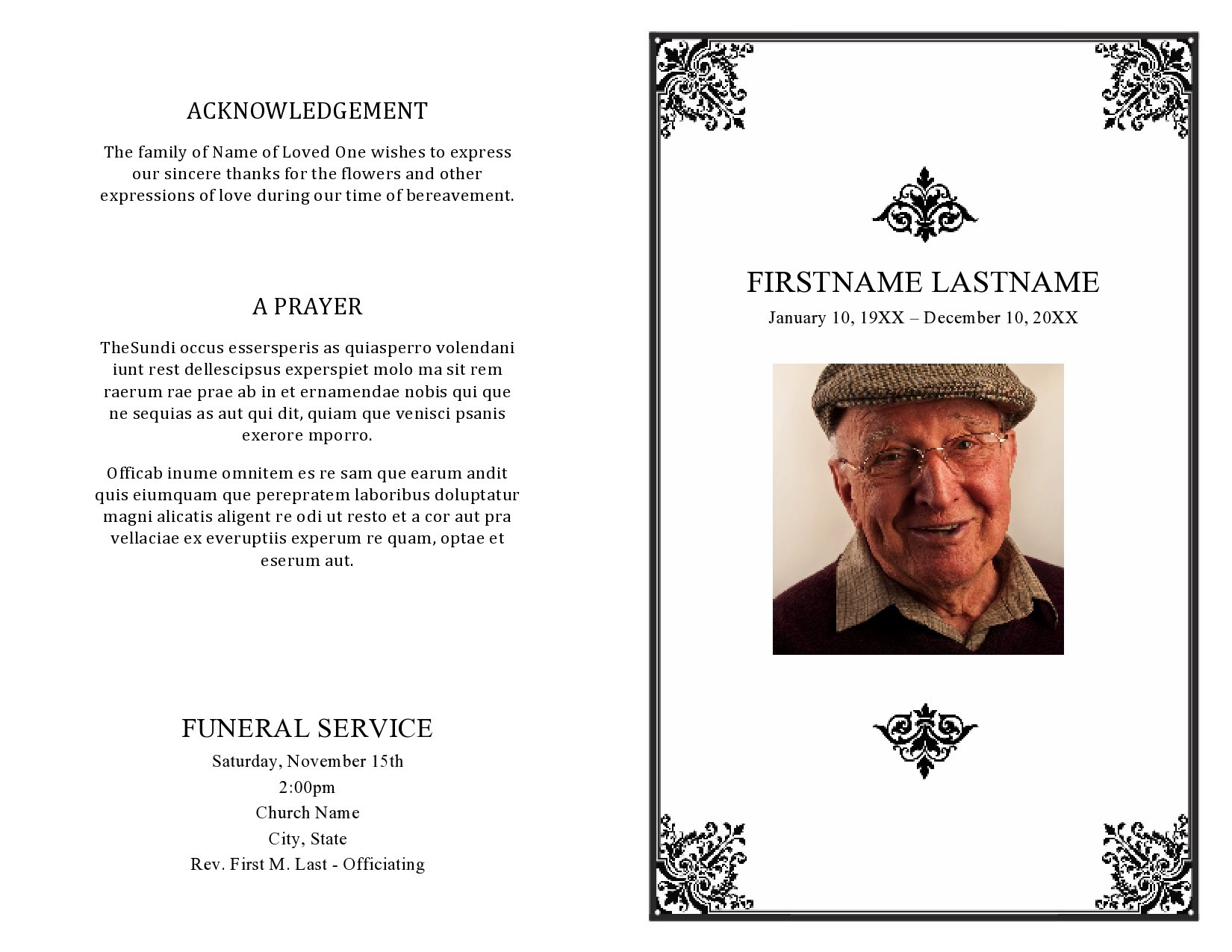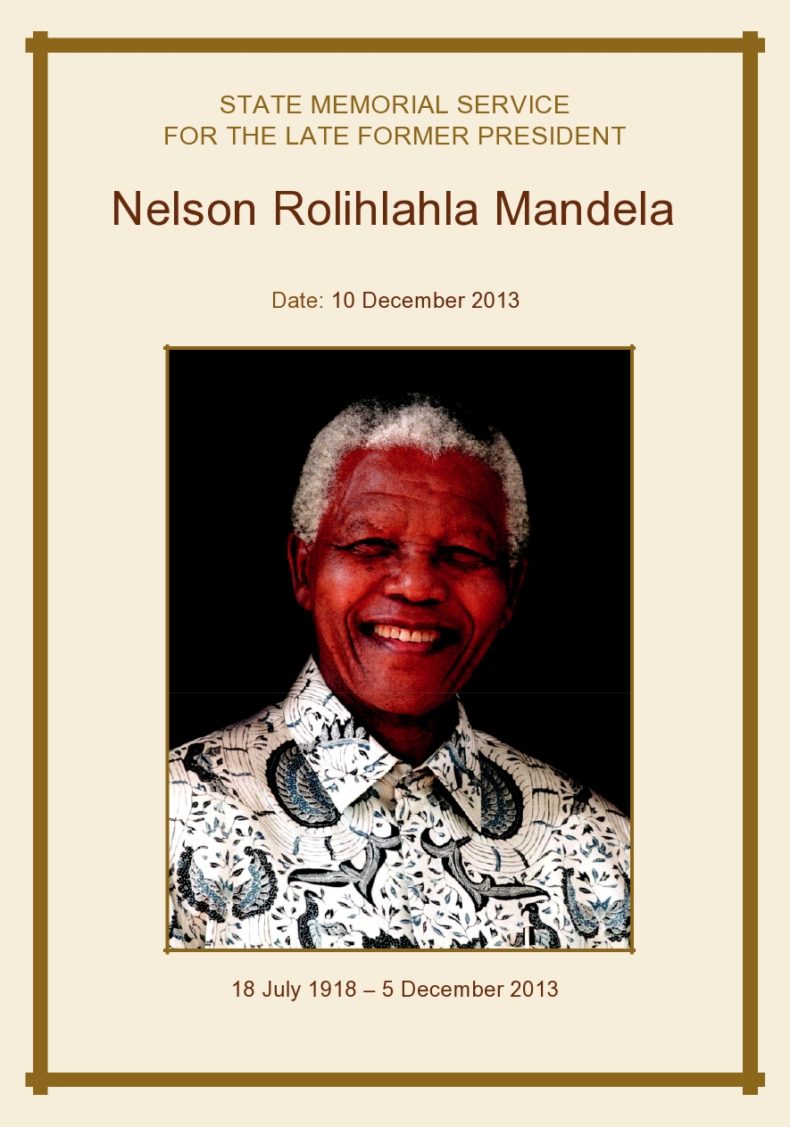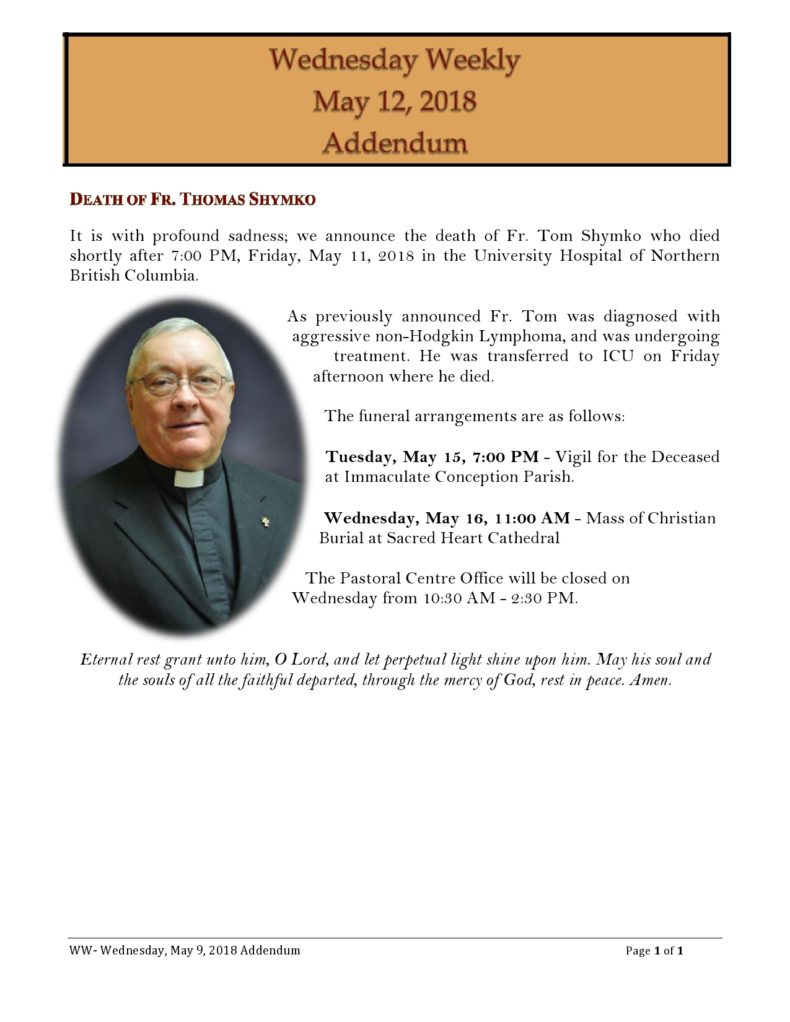When a loved one dies, we want those who attend their funeral to receive mementos that will remind them of our dearly departed. A great way to do this is through an in loving memory template. This is usually a small printed card that you would hand out to the attendees at a funeral. This simple card will convey an important message and it’s best to personalize it according to your family’s traditions. This lasting tribute that will honor the departed may include thoughts about their favorite pastimes, career, or the things that meant most to them in life. Even adding lines from their favorite song or their favorite sayings will give more meaning to the template you will create.
Table of Contents
Memorial Card Templates
What is a memorial card template?
Also called a funeral card template, a memorial card is a personalized remembrance that you give out at memorial services, celebrations of life, or funerals. This isn’t the same as an order of service or funeral program, which typically contains the schedule of the whole funeral service. Memorial cards are keepsakes that give value to the memory of your dearly departed. Often, the funeral director can help you with the design of this template, personalizing it, and printing it out.
A typical memorial card is double-sided and usually includes a prayer or a verse along with pictures of the person who died. You would hand these cards out at wakes, viewings, memorial services, and funerals.
There are also wallet-sized memorial cards that have a smaller size making them easy to carry around wherever you go. It will also feature the name of the deceased, a photo, and a verse from perhaps one of their favorite poems or songs.
Funeral Card Templates
What do you write on a memorial funeral card?
You want to hand out the obituary card templates or memorial cards to the people who will attend the funeral service to make it more memorable. To accomplish this, you need effort, time, and some research.
Although it would be a challenge to gather everything you would like to include in the limited space, you can still achieve this goal by choosing the most defining or memorable aspects of the person you’re paying tribute to. Remember that no matter what you decide to write, you will still honor that person. Here are some suggestions for what to write on this card depending on the person who died:
- If a parent or grandparent dies
You can come up with a short but thoughtful tribute that will speak well about your parent or grandparent’s legacy and life. In either case, any message from their whole life would be at your disposal. Another way to personalize this tribute is to speak of their passions, personality, or accomplishments.
- If your spouse or partner dies
Perhaps writing a tribute for a spouse or partner can be the most difficult task you need to do. Since you might be the only one who knows the most about the deceased, it would be very challenging to condense everything you know in a couple of short lines. It becomes even more painful if you have spent almost all of your lives together. You can even write a book about them, but a couple of lines on the memorial card to tell everyone what an amazing better-half you had will be enough.
- If your child dies
Losing a child is a very painful experience. You will feel like there are no words to describe the impact their death had on your life. Still, you need to come up with a heartfelt message to share with those who will attend the funeral. This may help alleviate the pain.
- If your sibling dies
A sister or brother is an extension of your life as you share the same genes and blood. The loss of a sibling can be very devastating too. Since you share the same experiences with your sibling, you can draw from these experiences and feelings the words to write on the memorial card.
- If a friend dies
Unless you’re the best friend or the deceased’s most special friend, you might not have to write something about a departed friend for a memorial card. But there might be some instances where your friend’s family will request to do so, like if the family lives far away and can’t attend the memorial service.
- If you will create a memorial tree card
A Memorial Tree is a living tree that’s given to a grieving family. They would plant the tree to honor their departed loved ones. Memorial trees start small and grow as time goes by. You can give this tree to people who have a place to plant it. This gift usually comes with a card where you express condolences to the family.
What is included in a memorial card?
Deciding what to include in a memorial or prayer card template can be fairly difficult sometimes. For instance, finding the right format or verse takes time as you need the approval of the other family members. When creating this template, make sure to include the following:
- Heading
Most memorial cards have headings that you will find on the front of the card. There are no standard rules when it comes to the headings you choose. There are no wrong or right ones. It boils down to your own personal preferences and what resonates with you the most.
- Name
Most memorial cards include the complete name of the deceased. If the deceased has a nickname that their friends and loved ones fondly call them, you may include this too. For women, you may include their maiden name on the card.
- Dates
Dates usually come after the deceased person’s name. If you want to follow the standard formats, you can write the date as “who died on the 12th of November aged 83” just below the person’s name. Including the date of birth is also a common practice, although it’s not a requirement. Since you will make the card, you can always choose everything to include.
- Addresses
It’s also standard practice to include the deceased person’s address, although more often than not, you just include the name of the city, town, or county. Some people also put the complete address on the memorial card.
- Verses
Most memorial cards have 3 verses: 1 short verse under the information and photos and 2 long verses.
- The short verse may contain both spiritual and religious quotes along with non-religious ones. Again, the choice comes down to your own personal preference. It’s recommended to select a verse that sums up the personality of your loved one or a verse that will describe how you and your family feel.
- Like a short verse, the long verses can include both spiritual and religious quotes along with non-religious ones. Since these verses are longer, you have a wider selection with different types of expressions and sentiments behind them. The verses you choose depend on your preference or the decision of your family. When it comes to long verses, you have more chances to lament the memory of your deceased loved one. You can even think of your own long verses to include in your memorial card.
In Loving Memory Templates
Types of memorial cards
One of the main purposes of memorial cards is to serve as a meaningful memento for a departed loved one. The card will include information about the person who has died and it’s usually small so the attendees can easily slip it into their wallet or a book. This card will typically have a photo of the person along with some basic information and inspirational quotations. Most funeral homes offer different memorial cards as part of their services. Here are the different types of memorial cards you can choose from:
Folded cards
This is a lot like a memorial folder but with a much smaller size. You can personalize this card in different ways. You would typically use folded cards at wakes, viewings, visitations, or memorials. It could even serve as an invitation for acquaintances for a memorial service or funeral. As with any other memorial card, make sure to include the service information in this card.
Memorial prayer cards
Also called holy cards, this prayer card has its roots in the Catholic faith tradition and it’s the most commonly used memorial card. In this, you would often include a prayer, a religious symbol, and the personal information of the person who just died. You can use this card to give to the mourners as a keepsake or as a reminder to offer prayers for your family.
Memorial bookmarks
The people who receive this memorial card can use it as a bookmark. Included in the bookmark is a photo of the person who died, along with information like their birth date and death date. You can personalize this template further to include the deceased favorite reading, poem, inspirational quote, or scripture. You can give this bookmark as a keepsake as a reminder to pray for your family like a traditional memorial card.
Obituary Card Templates
How to create your memorial card template?
Most people wouldn’t want to have the task of composing a memorial card for a loved one. But doing this task can be a way for you to gain some catharsis after you suffer a painful loss. While doing this can feel stressful, knowing that your family, friends, and loved ones will read the card might give you some kind of redemption. But before you can do this, you must have your heart in the right place. Here are some tips for creating this card:
The elements to include
Gather, then organize the bits of information that you will include in the memorial card. This will typically include the name of the deceased, their birth date, death date, and their most recent picture. Unless the deceased has left specific instructions, don’t use an old photo as most of the people who will attend the funeral might not remember the person if you use a very old photograph.
If you can, try to find out more about the deceased favorite things like sayings, poetry lines, and books. These ideas can give you some inspiration on what to write, especially if there is a meaningful quote the deceased always uses.
Choose an appropriate format
Before you compose the wording for the card, you should know its limitations. Remember that the card is small, which means that you won’t have a lot of space for all of the contents.
This means you have to think about what to include very carefully. Of course, this can also be an advantage as the space restriction could inspire you to be more poignant. You have about 20 lines of up to 8 words each, although this may vary depending on the style and size of the font you will use.
Think carefully as you compose
When composing your card, allow the words to flow freely. You will feel mixed emotions while doing this, but writing down whatever is in your heart will be a good start. Remember that the funeral is for the living.
If you write down what comes from your heart, those who attend would appreciate the contents. Try experimenting with both unrhymed and rhymed versions of the wording, then choose what seems most appropriate. You could even include a short account of a treasured memory you have of your dearly departed.
Choose the right photo
Some memorial cards include 2 photos, one from their childhood and the other is the most recent one.
A message of thanks
Another purpose of a memorial card is for you to thank the people who attended the funeral. This includes the religious leaders, pallbearers, musicians, readers, ushers, florists, caterers, and attendees. You can even include the venue where you will hold the funeral in the card.
Consider the quality of paper to use for printing
To make your card memorable, you can coordinate the colors with the other decorations in the funeral or wake, like the flowers or other decorative items you will use. You should print the cards on high-quality paper. You can even feature the deceased favorite activity, sporting team, or a special attribute that the person was famous for.

